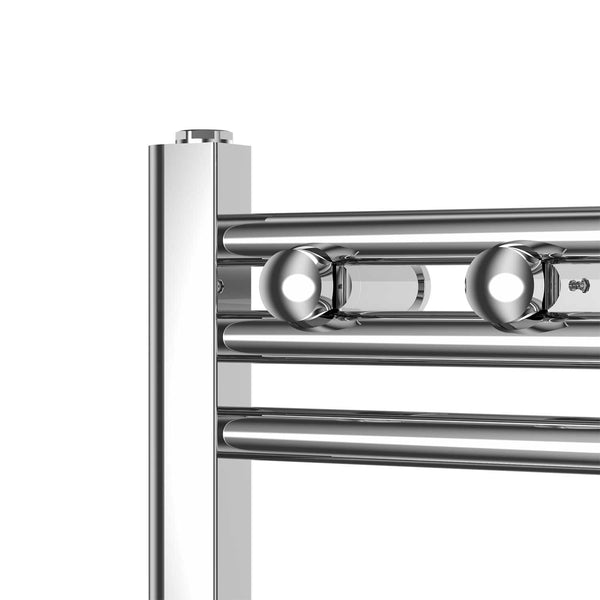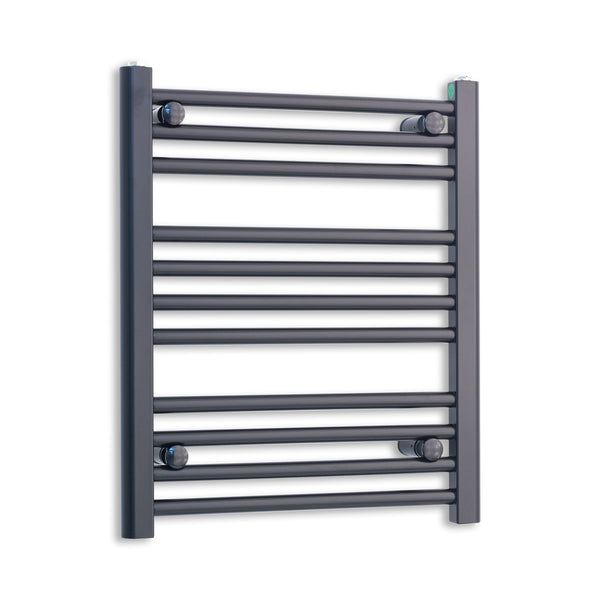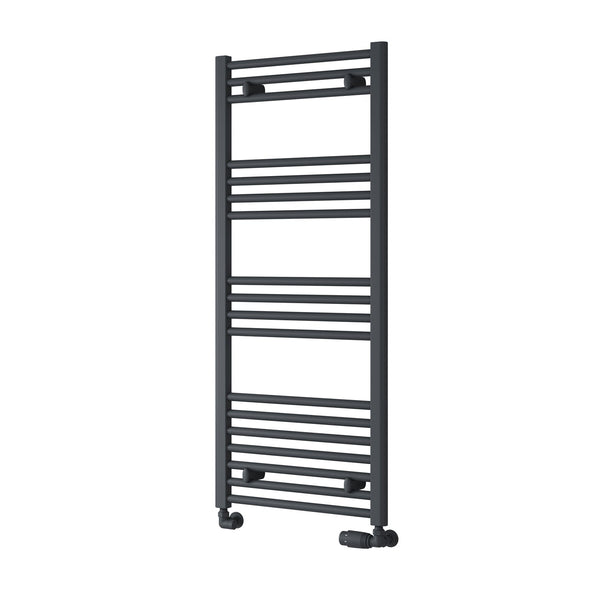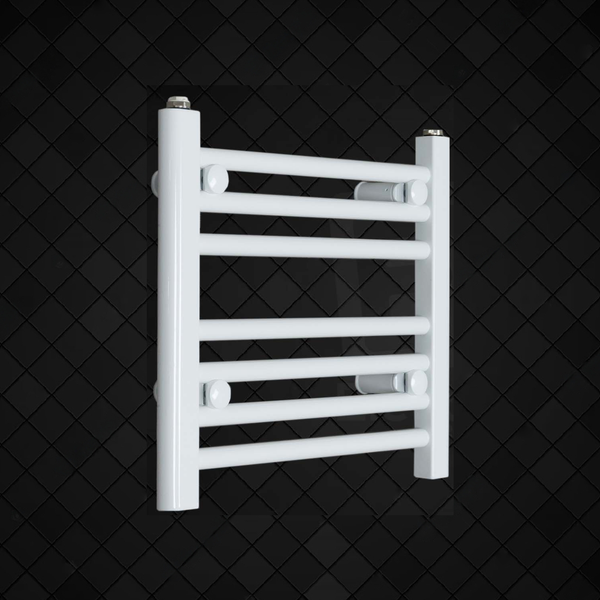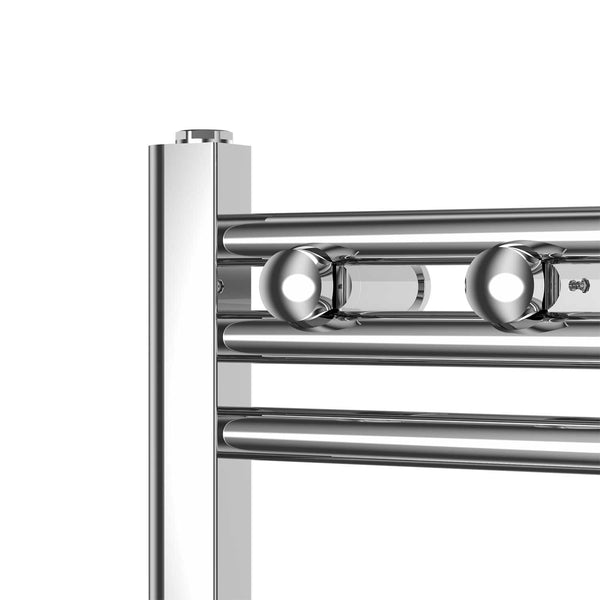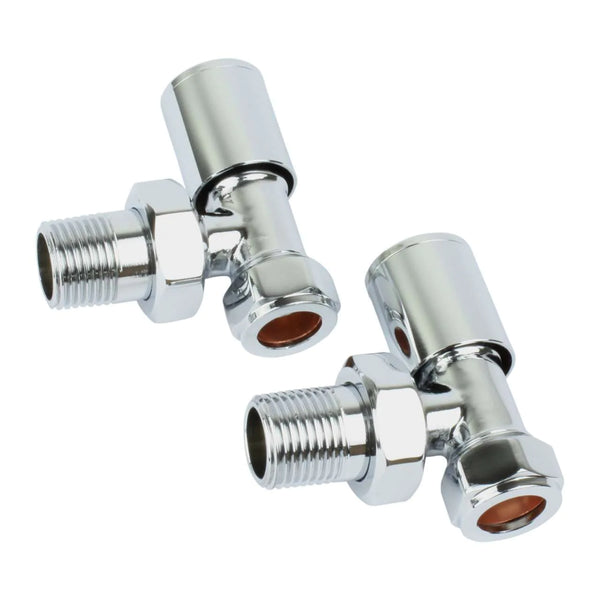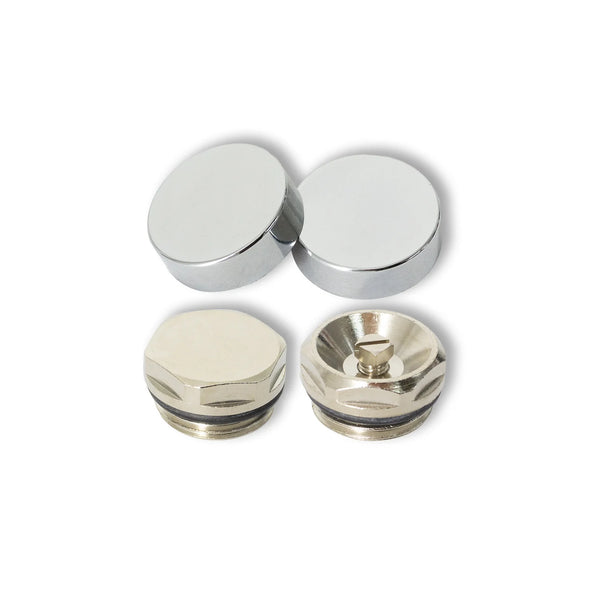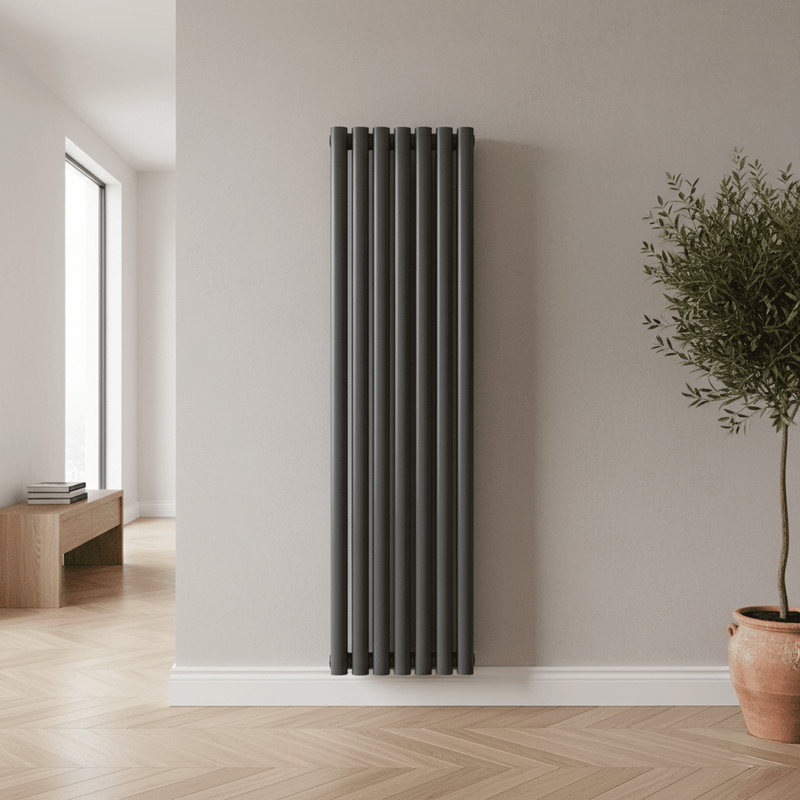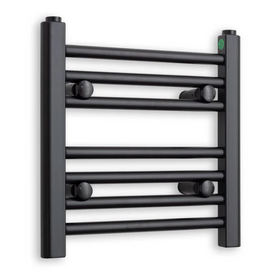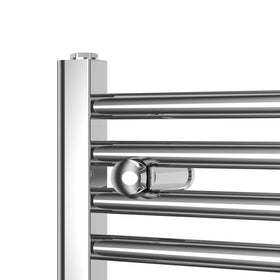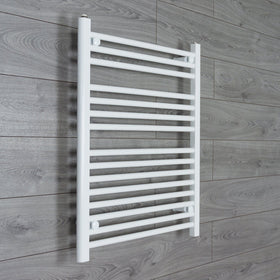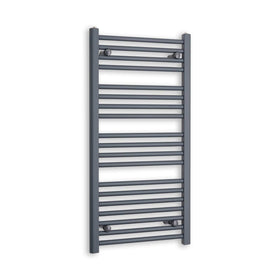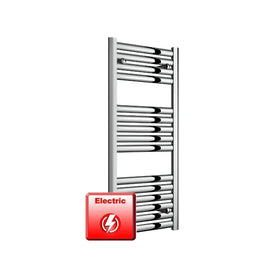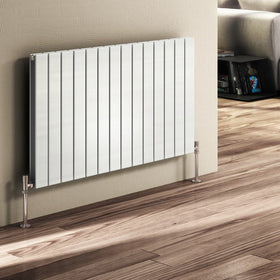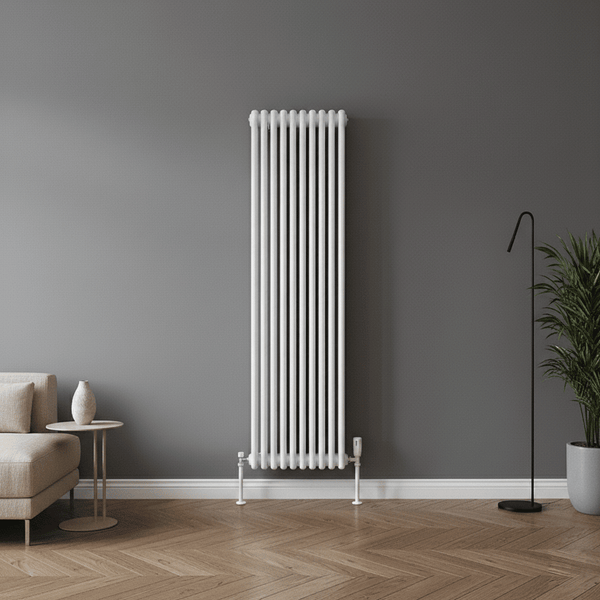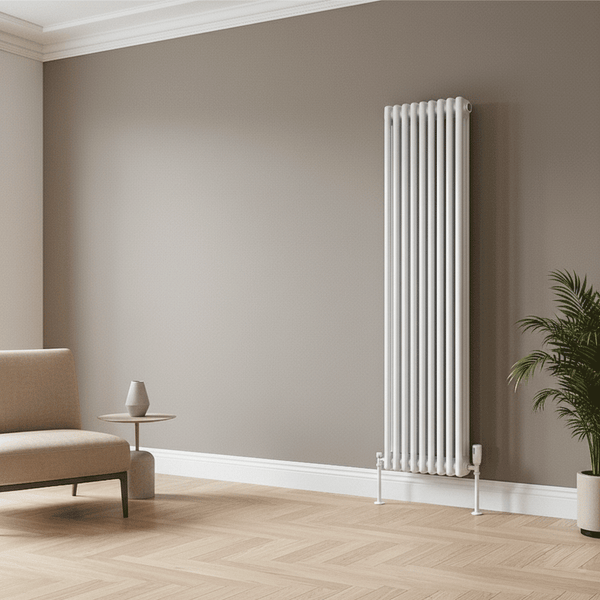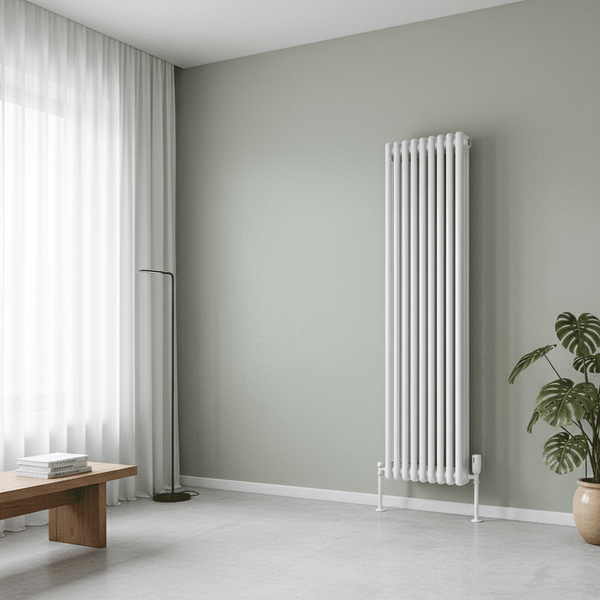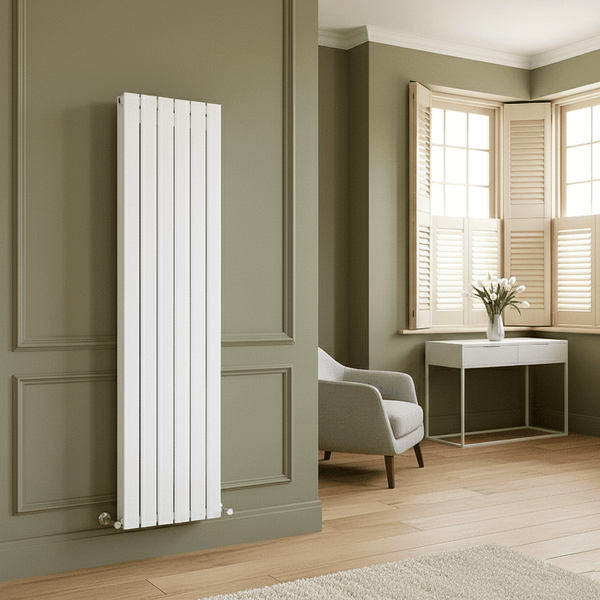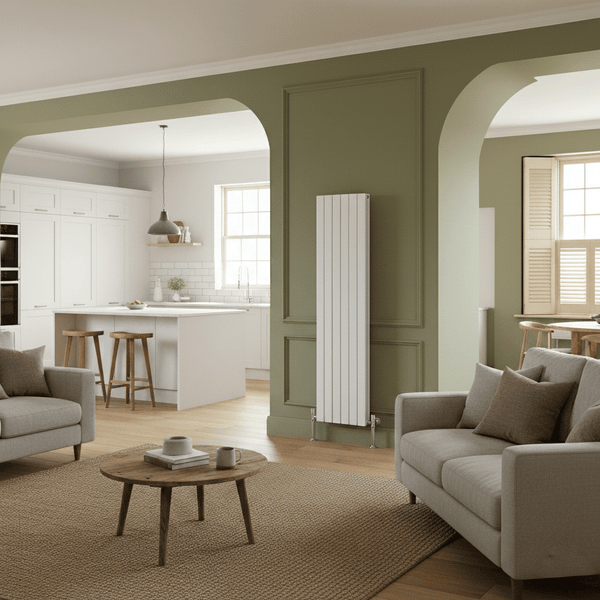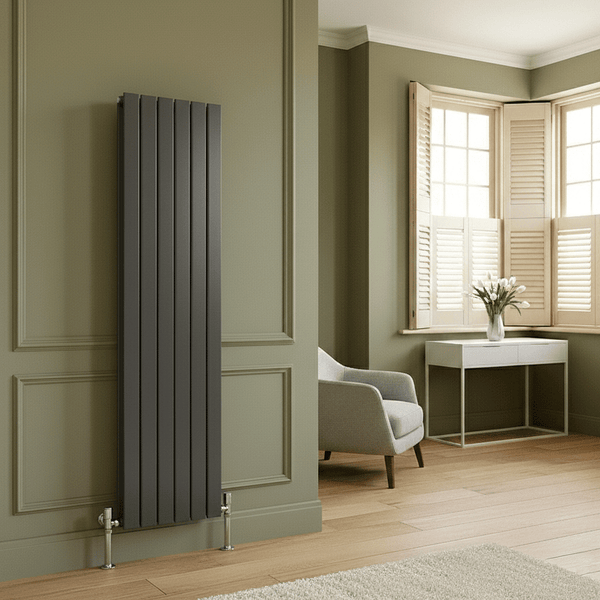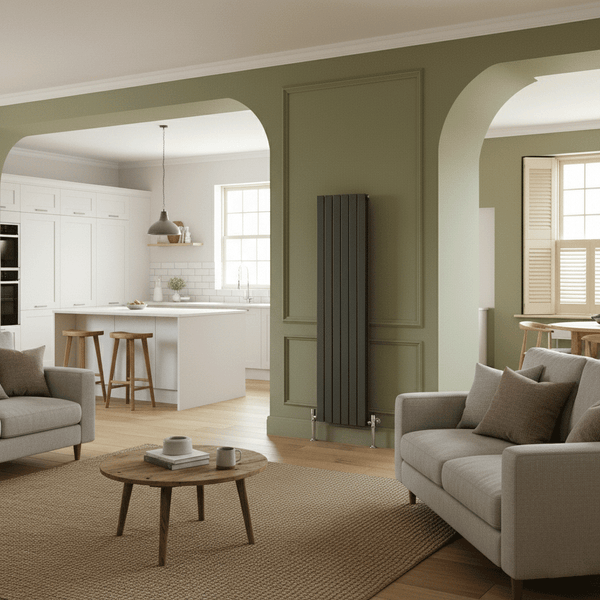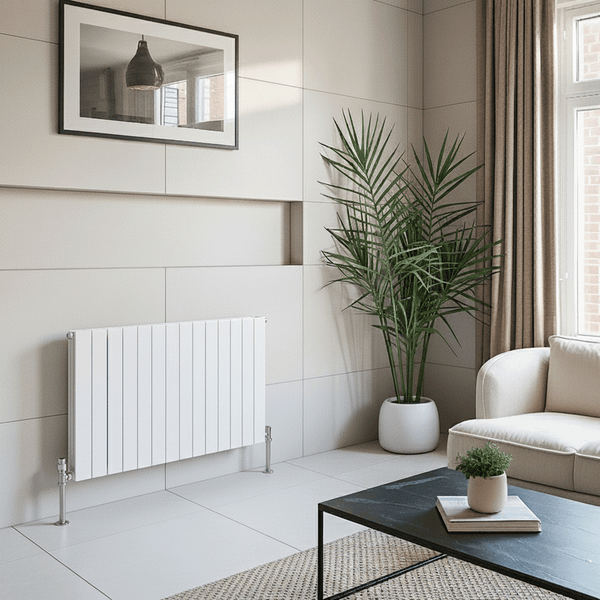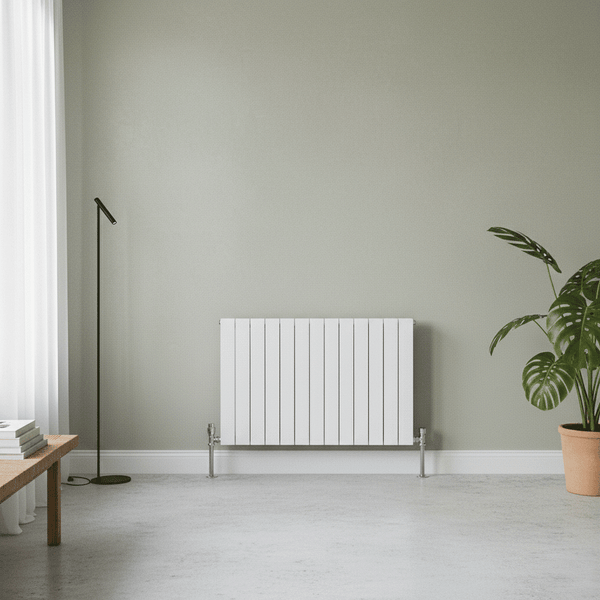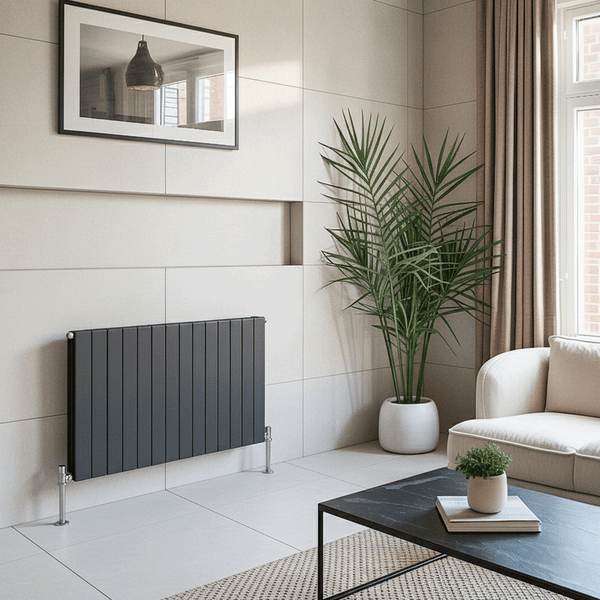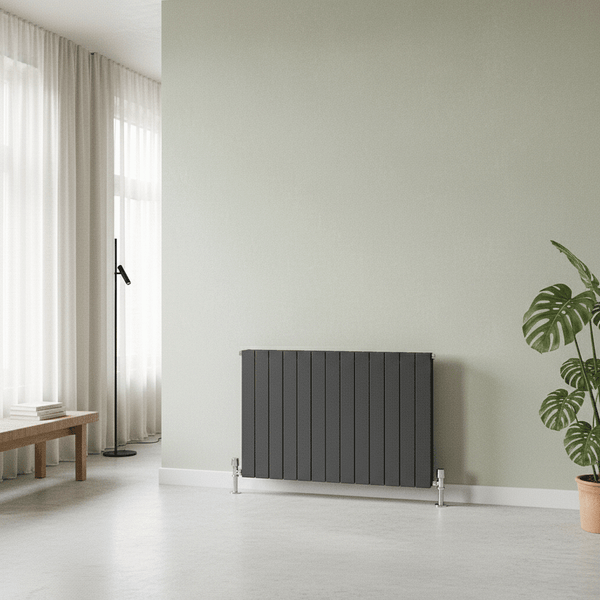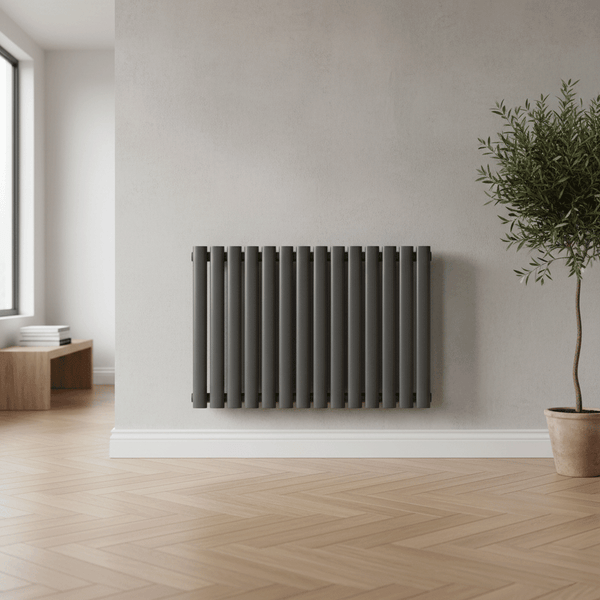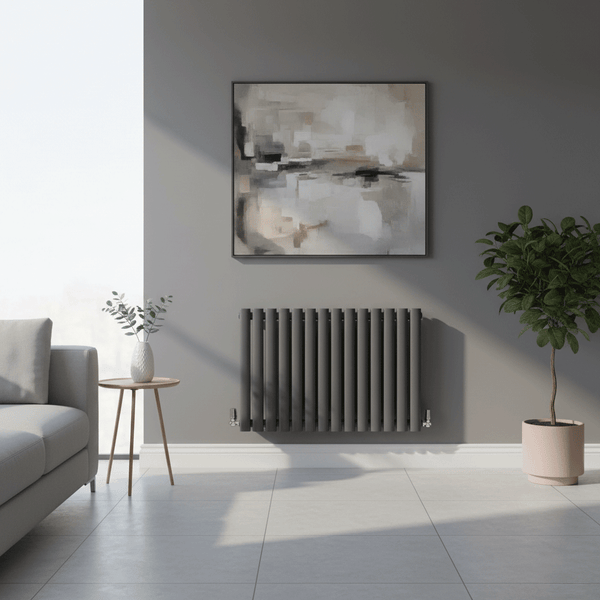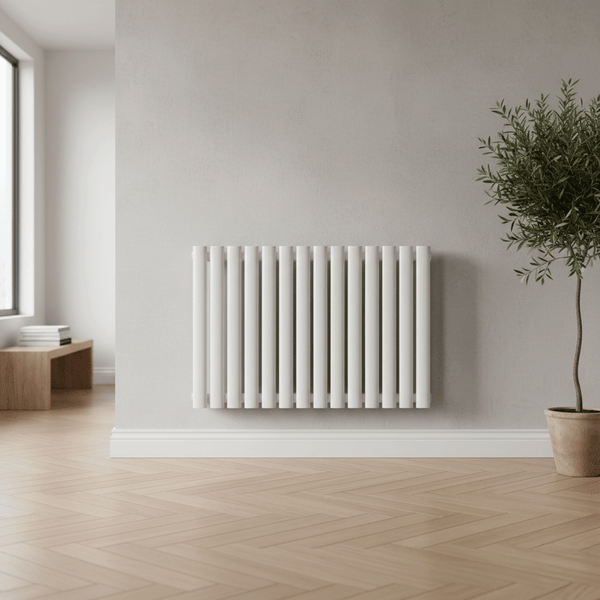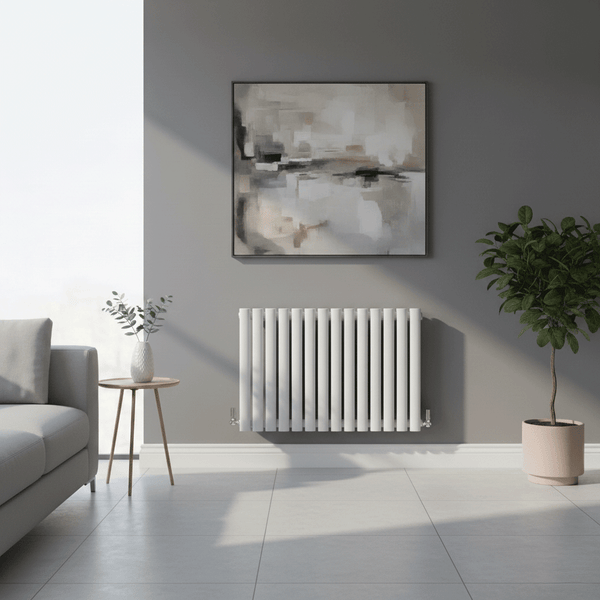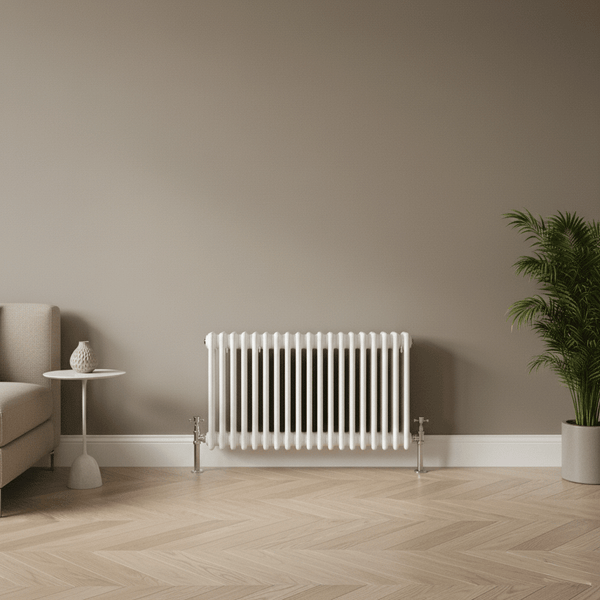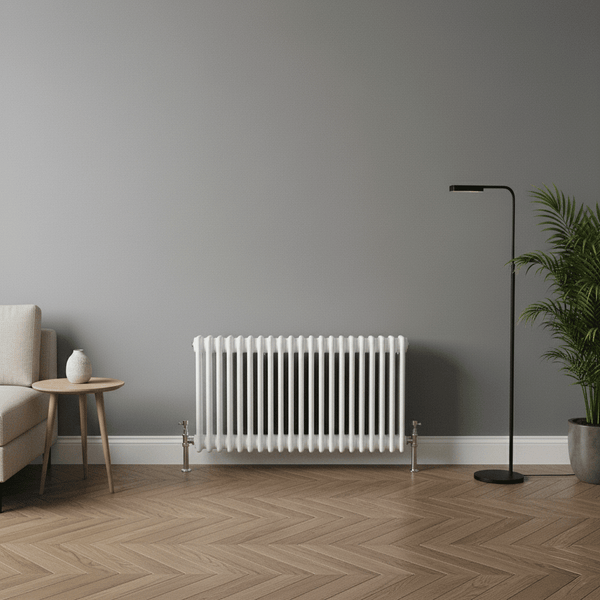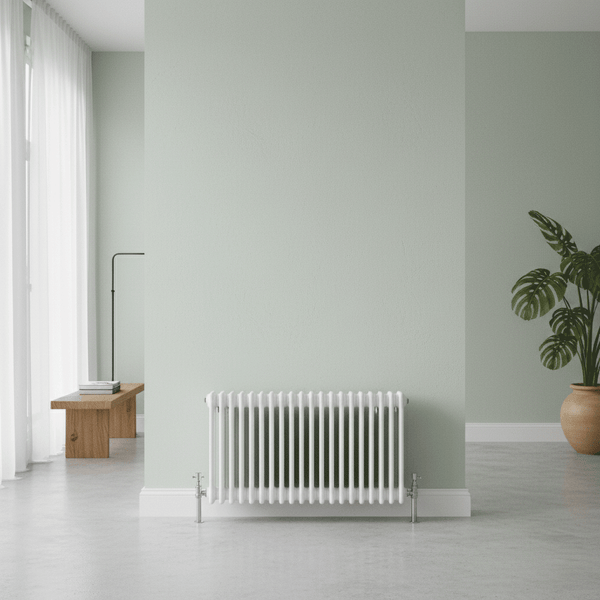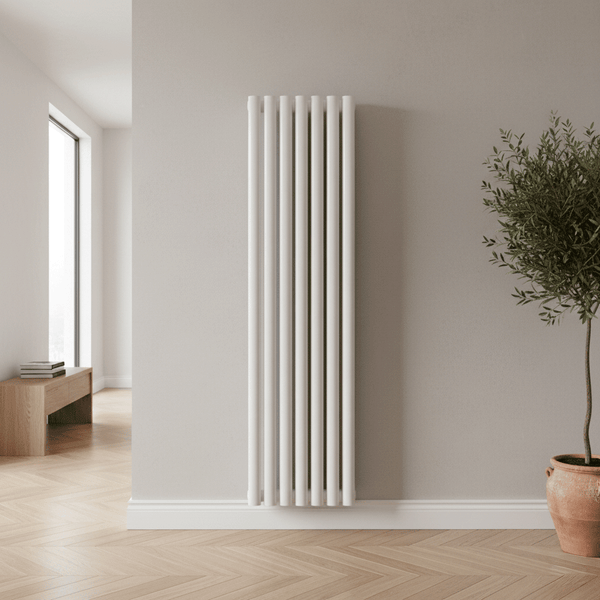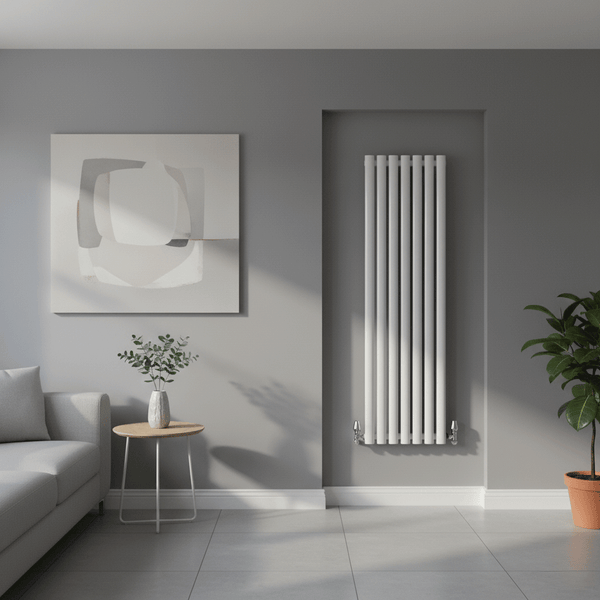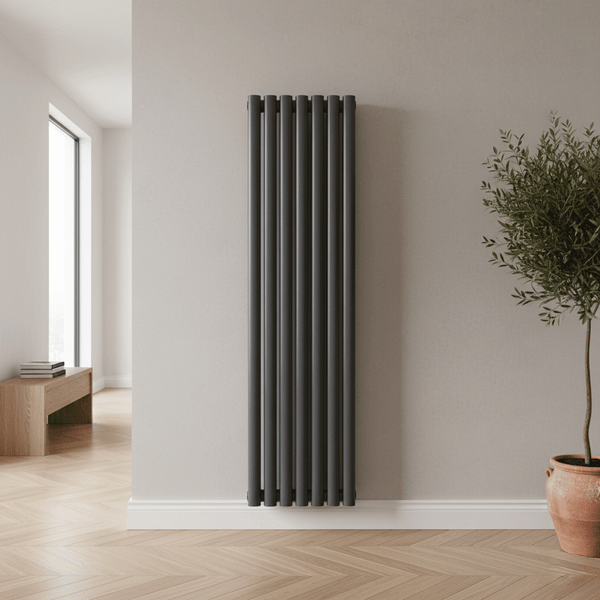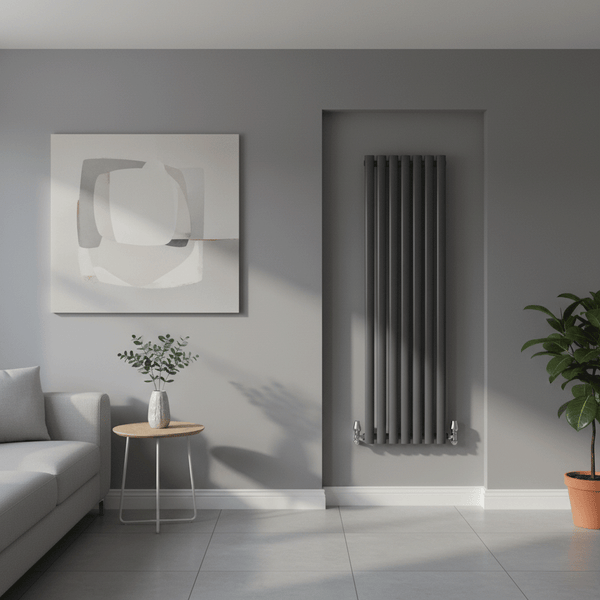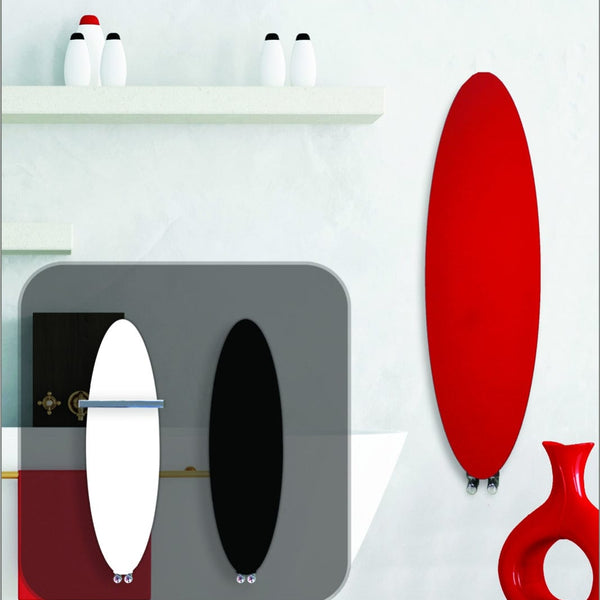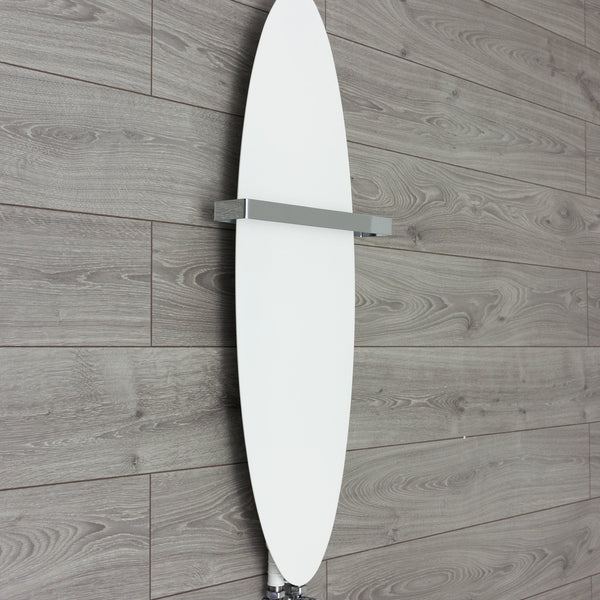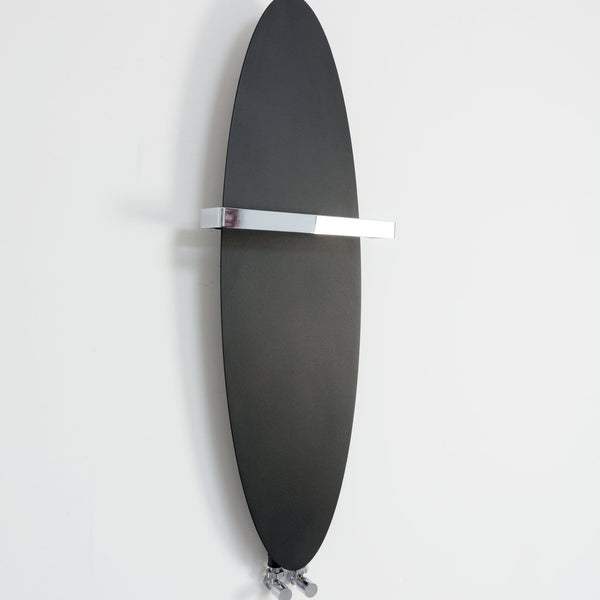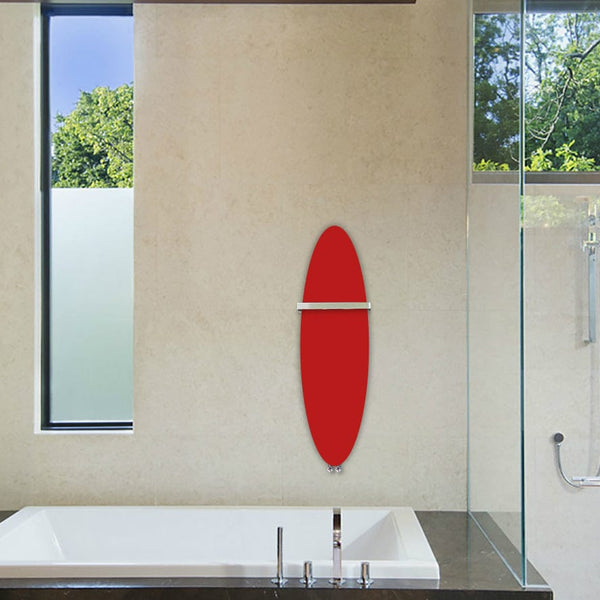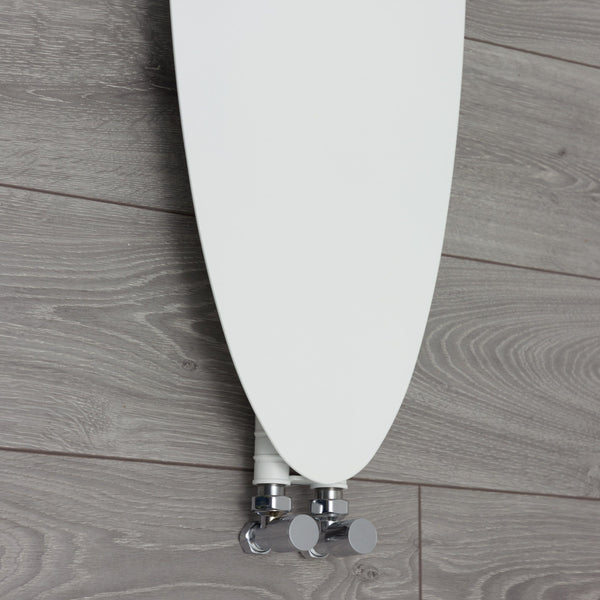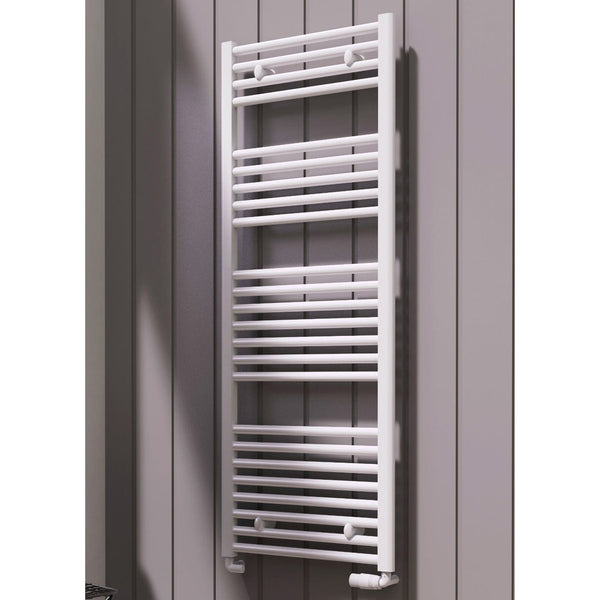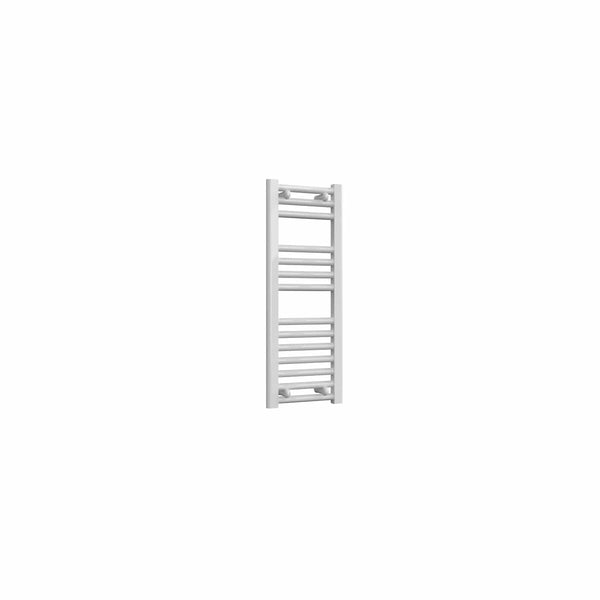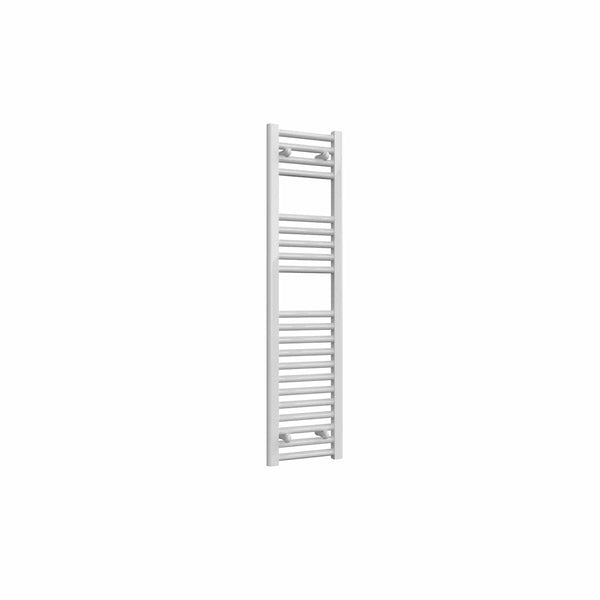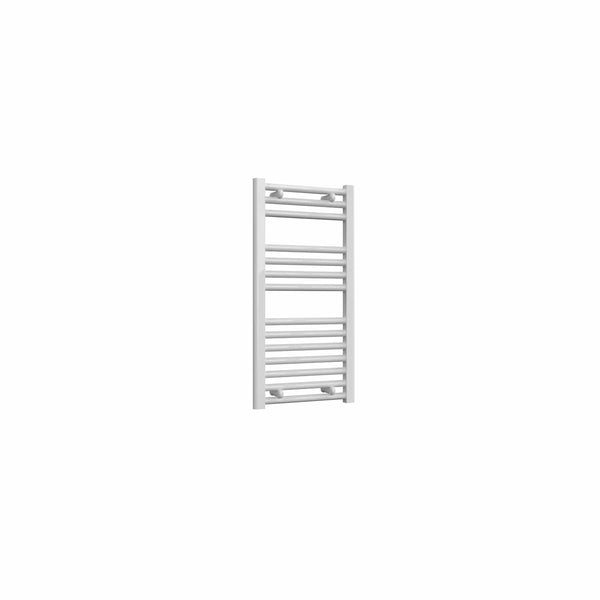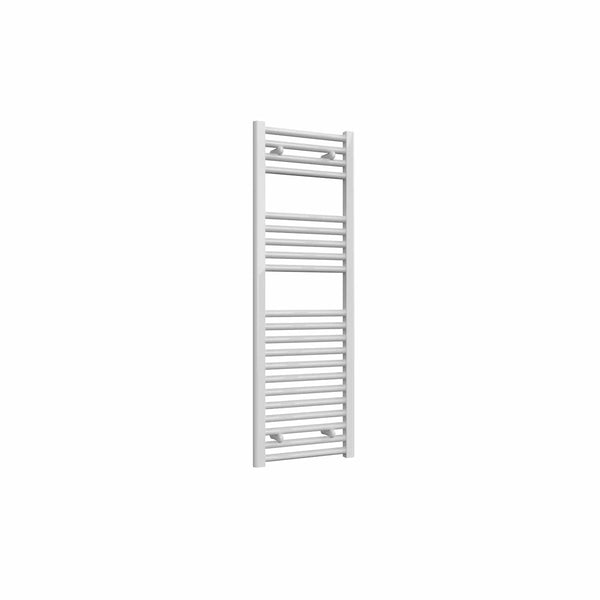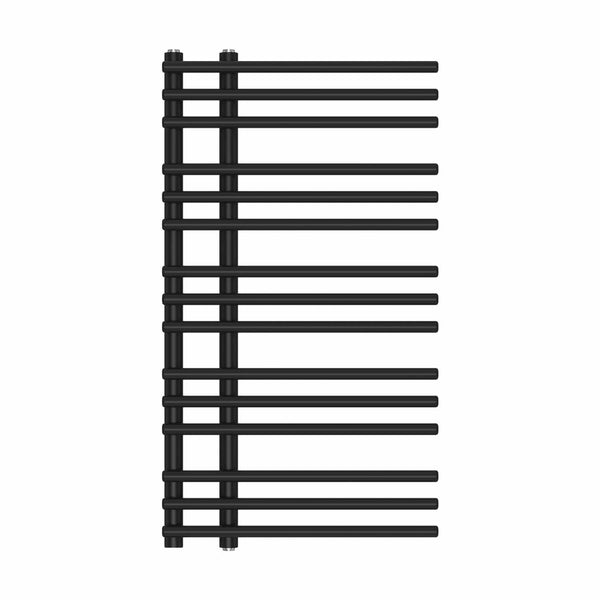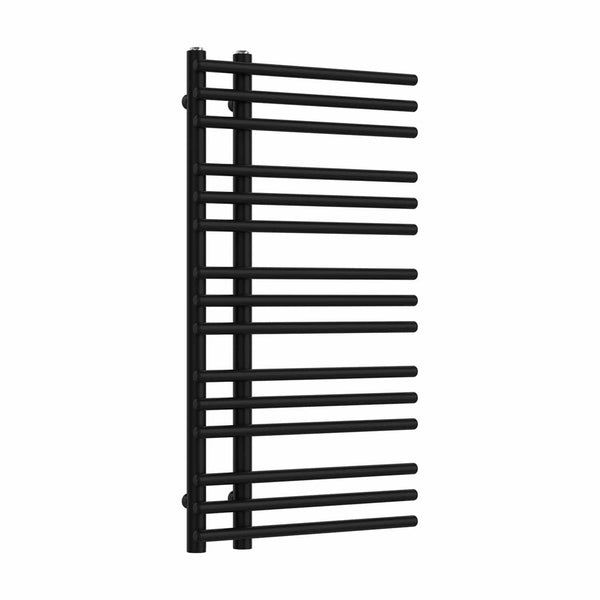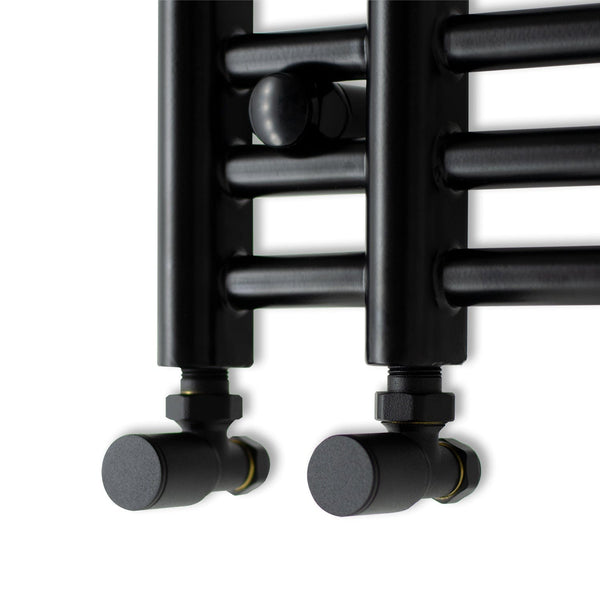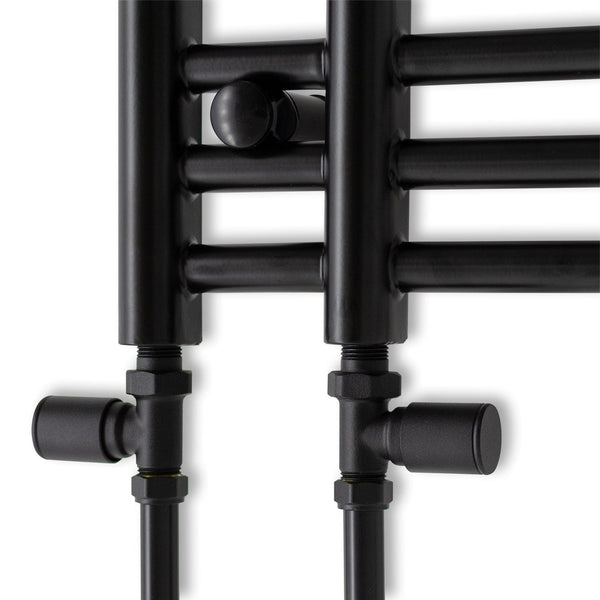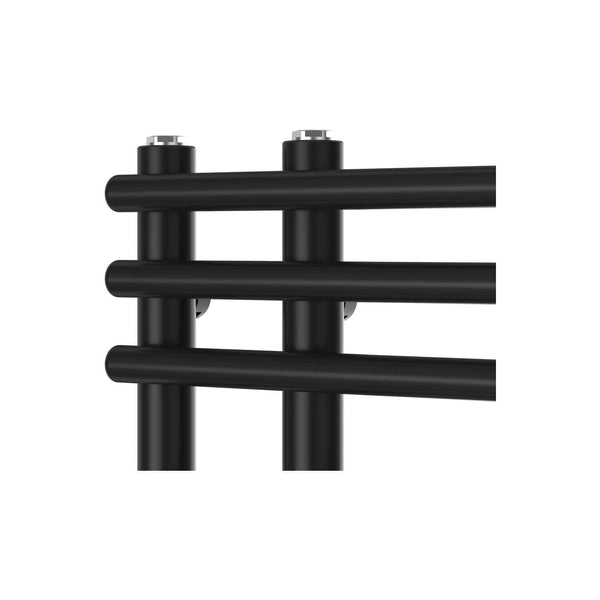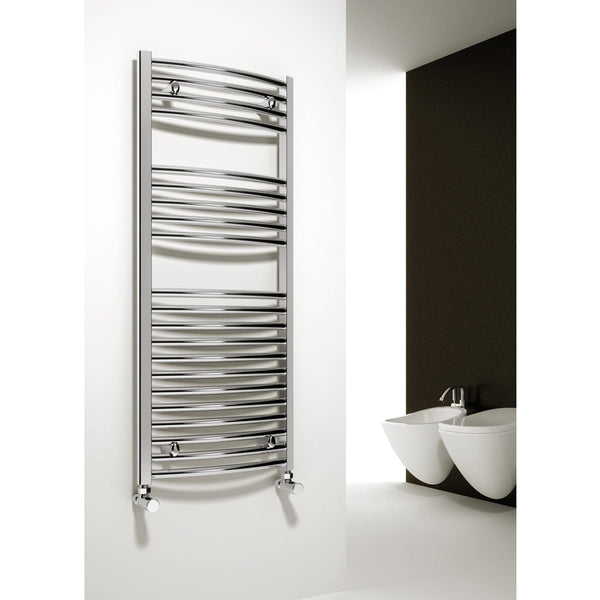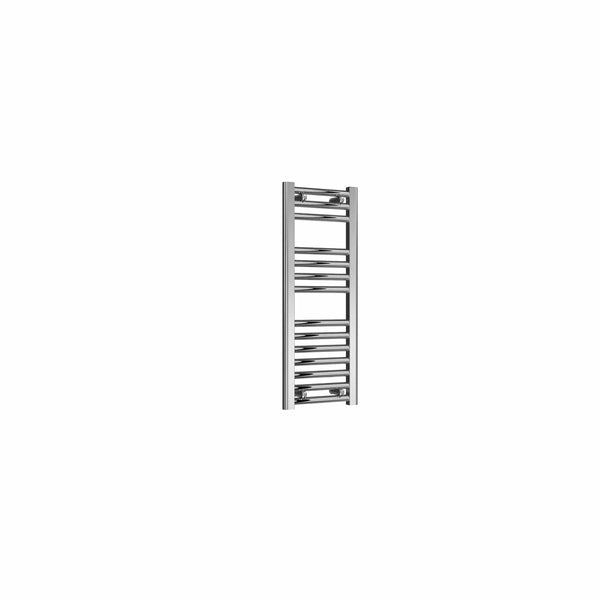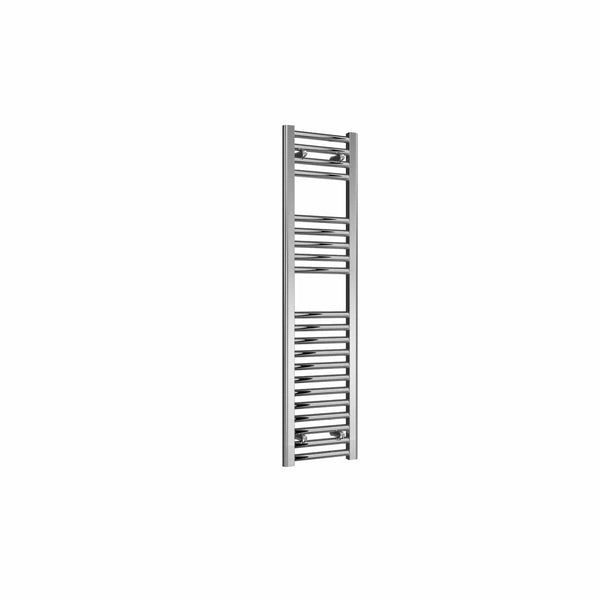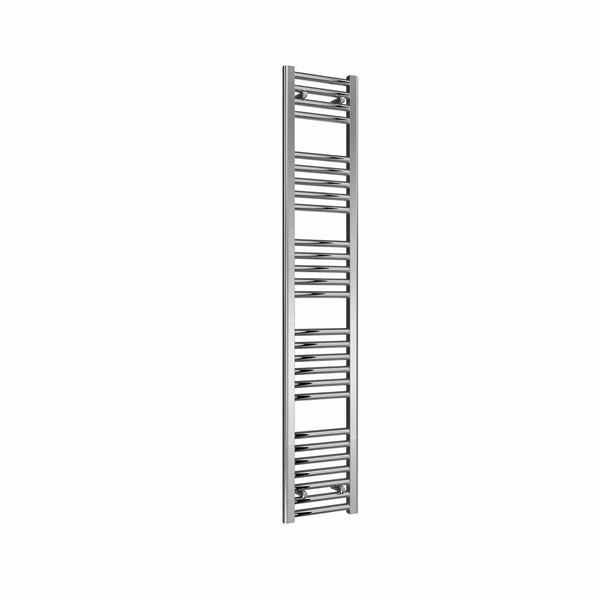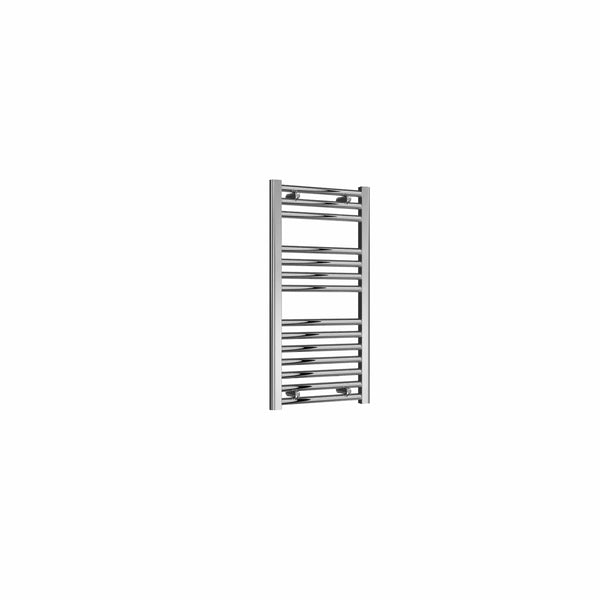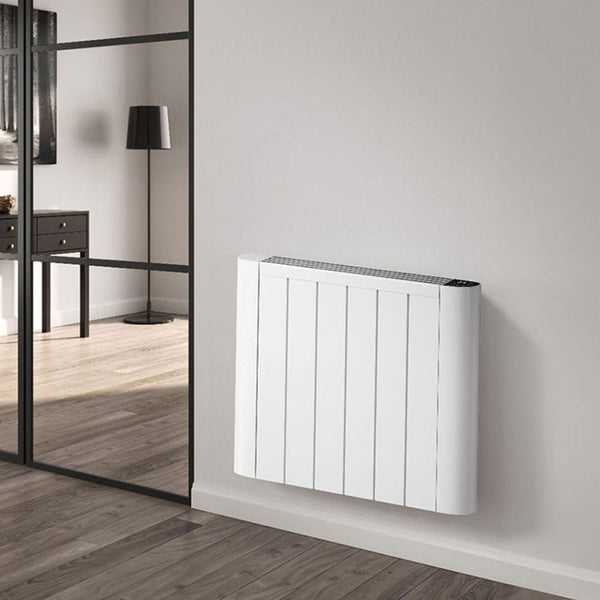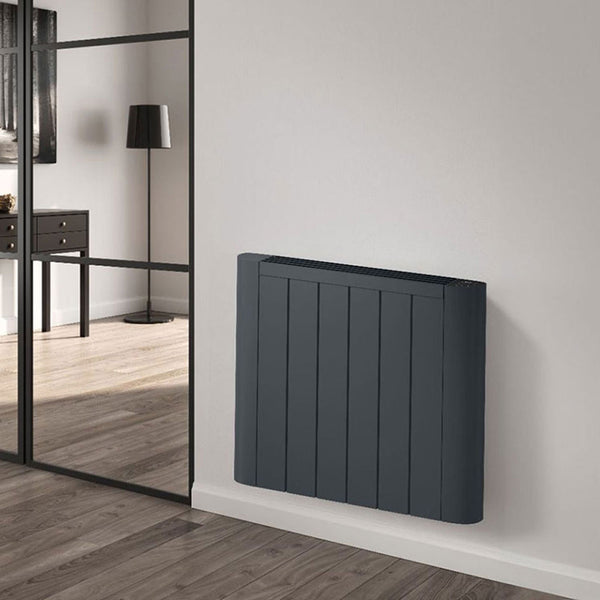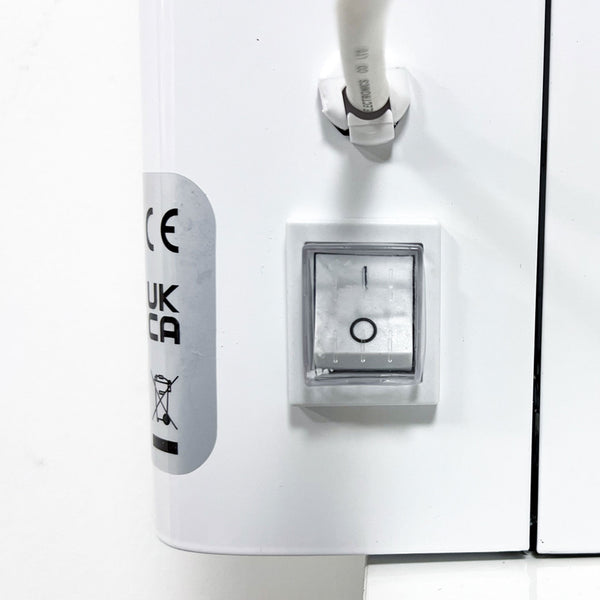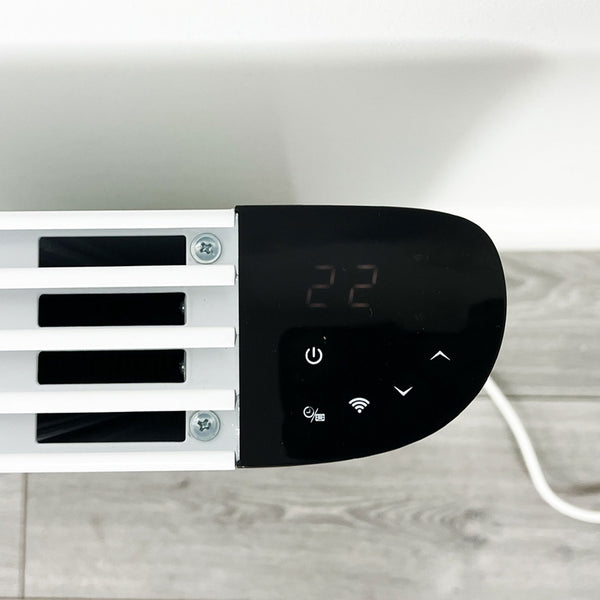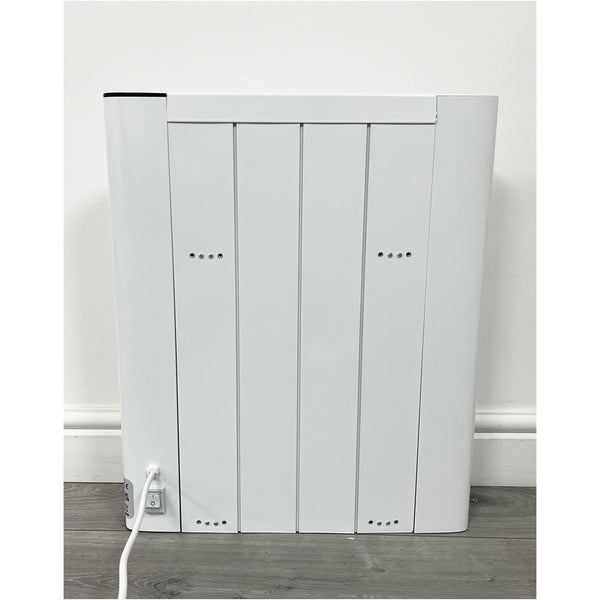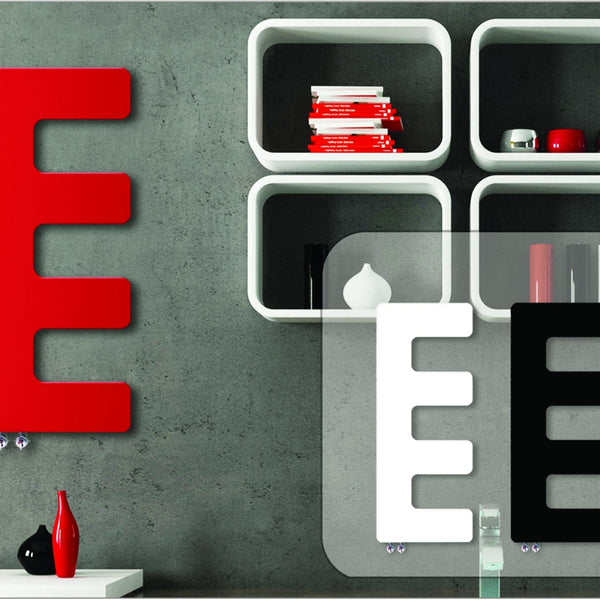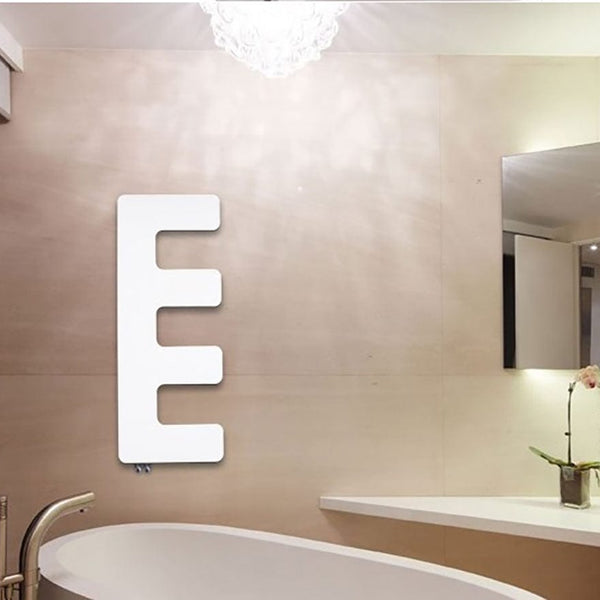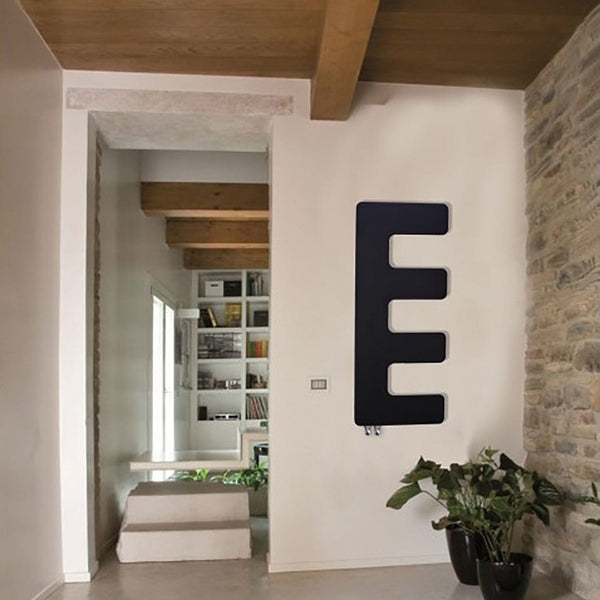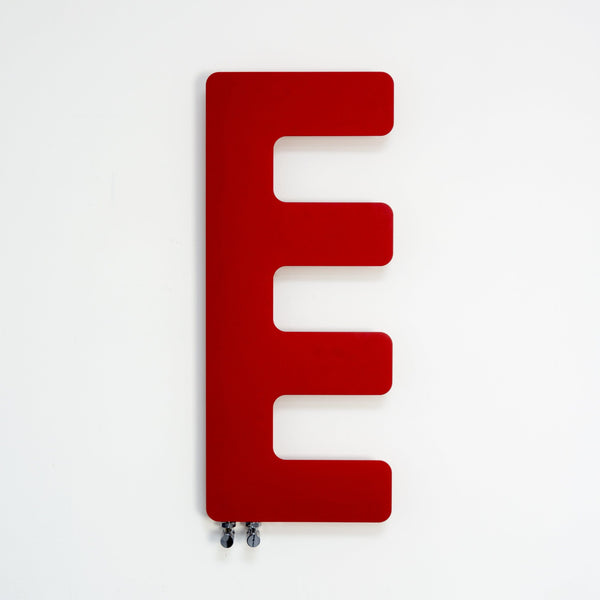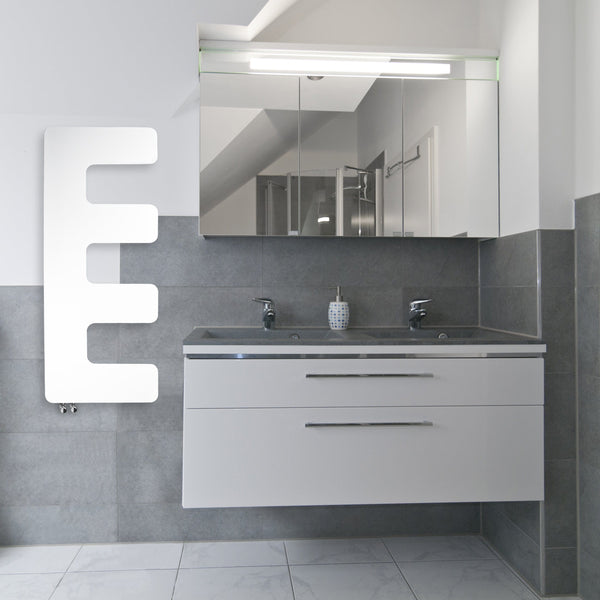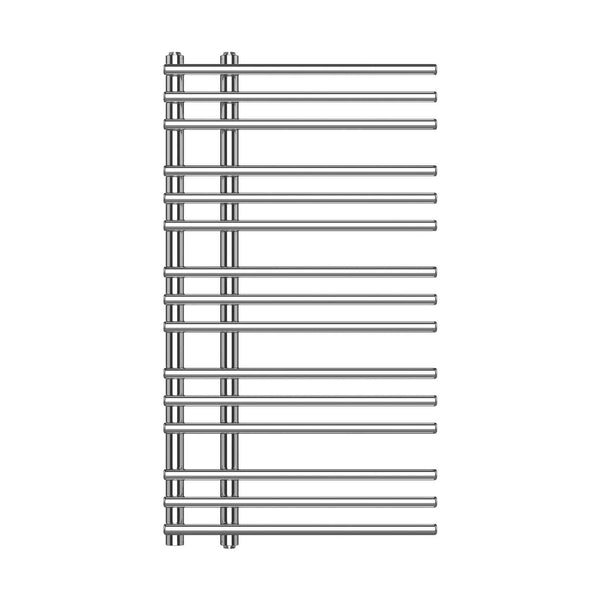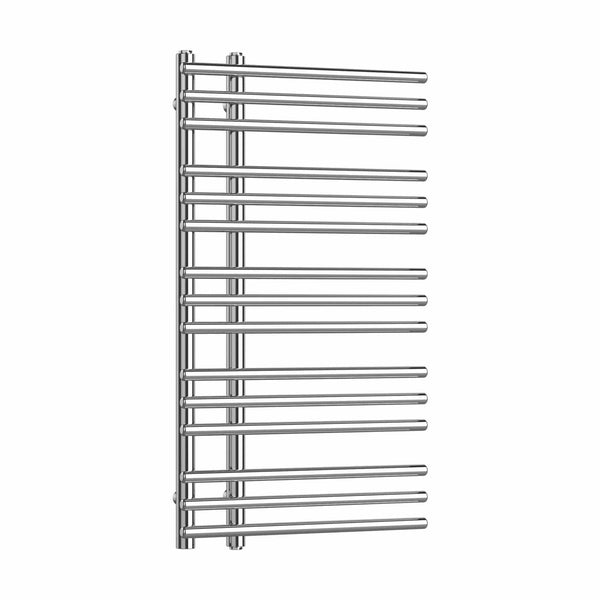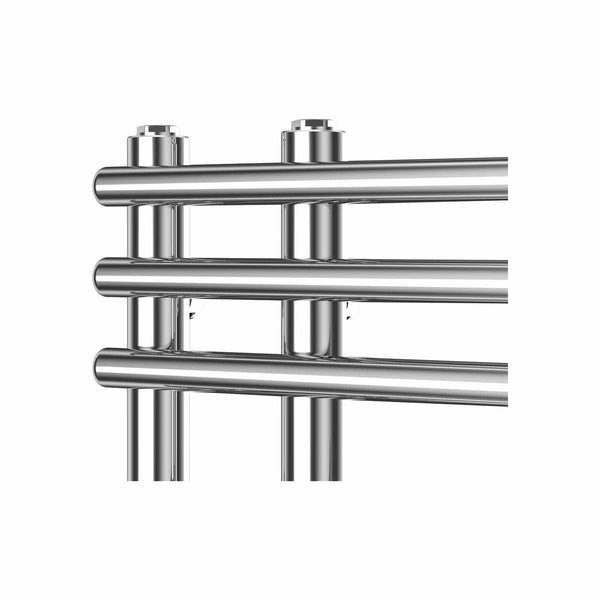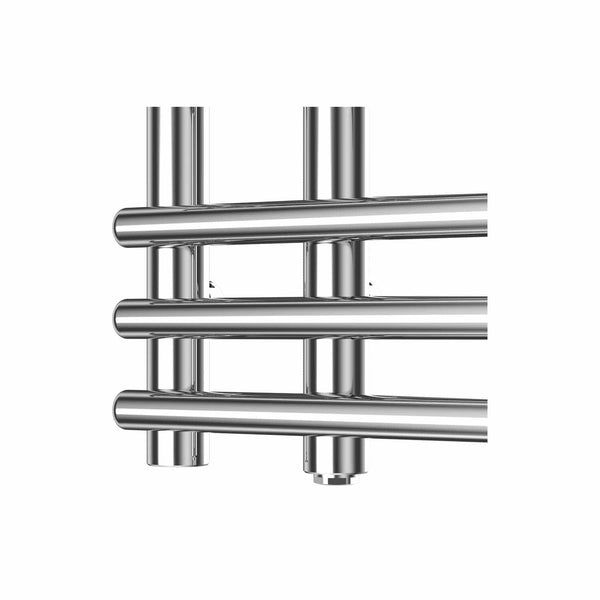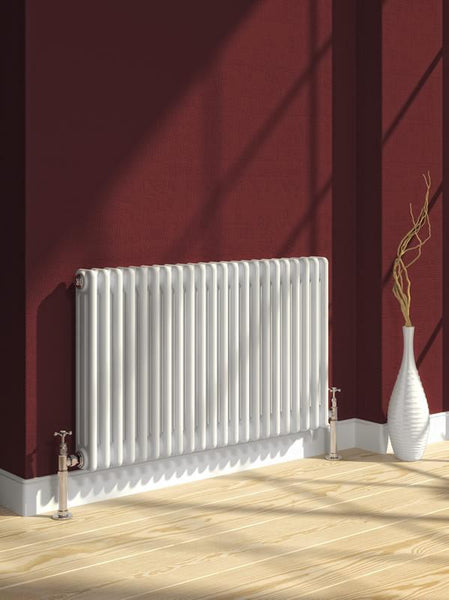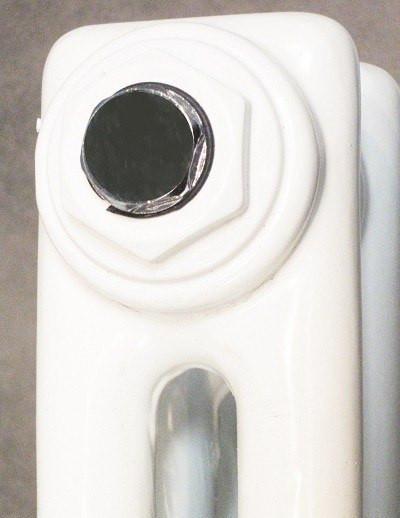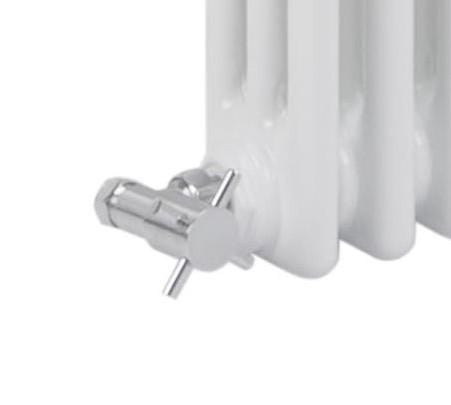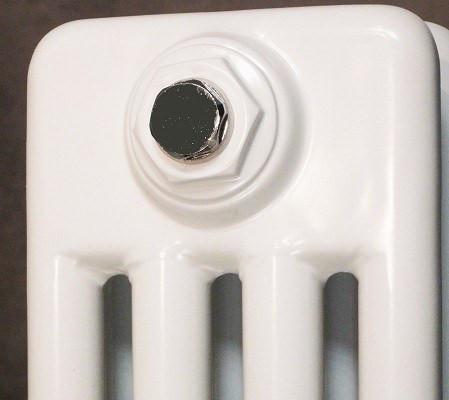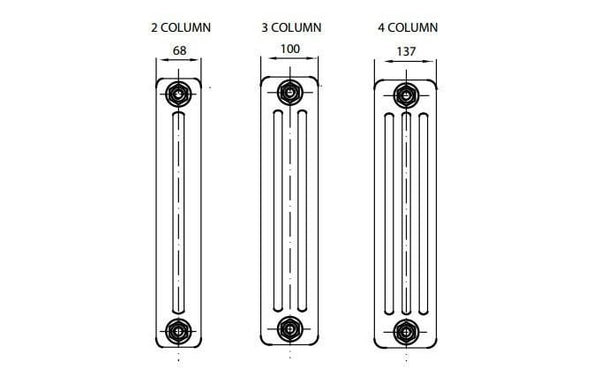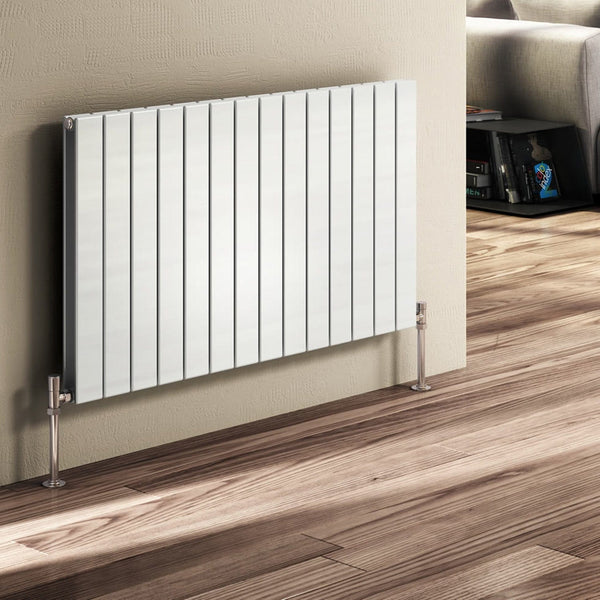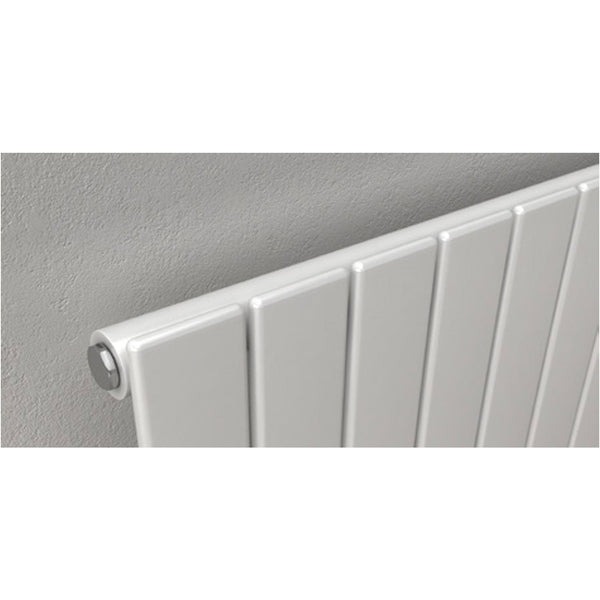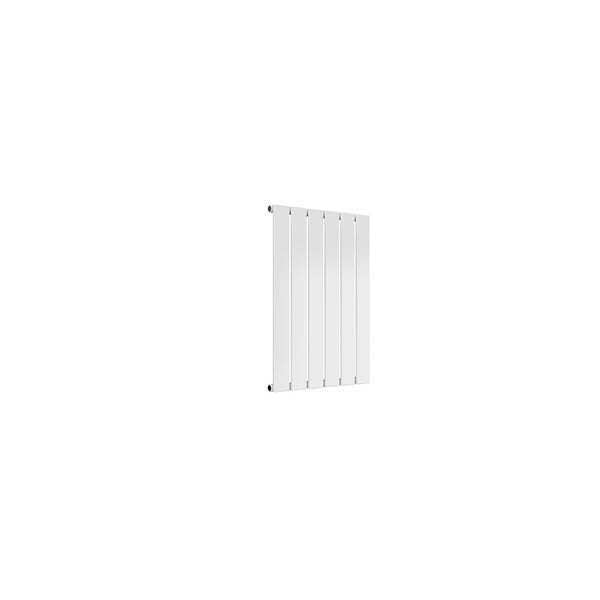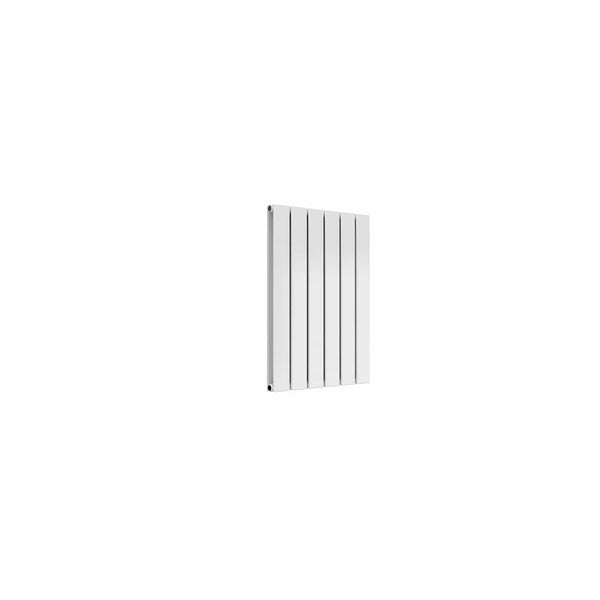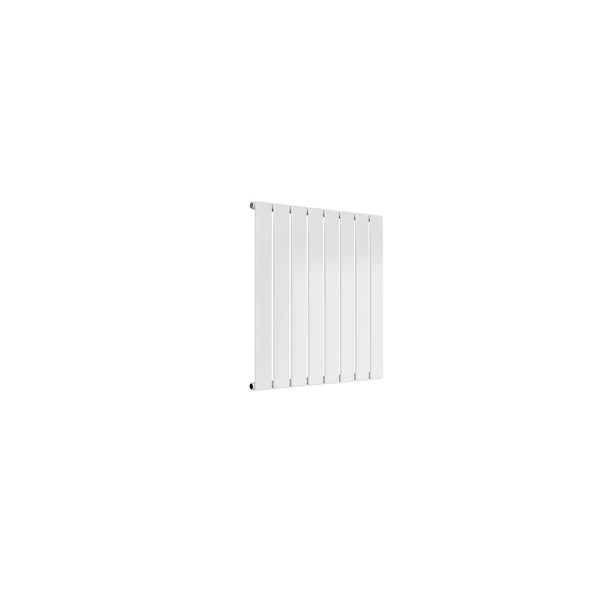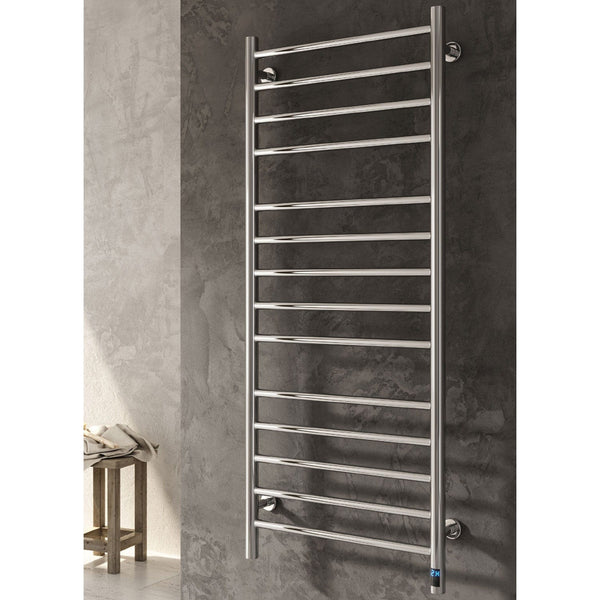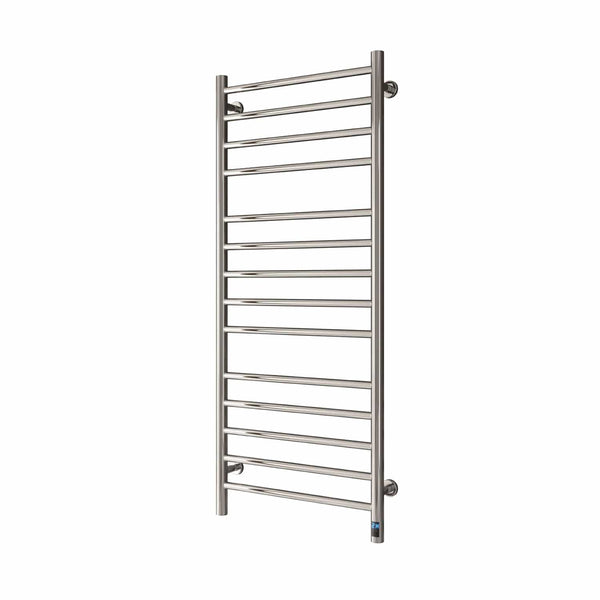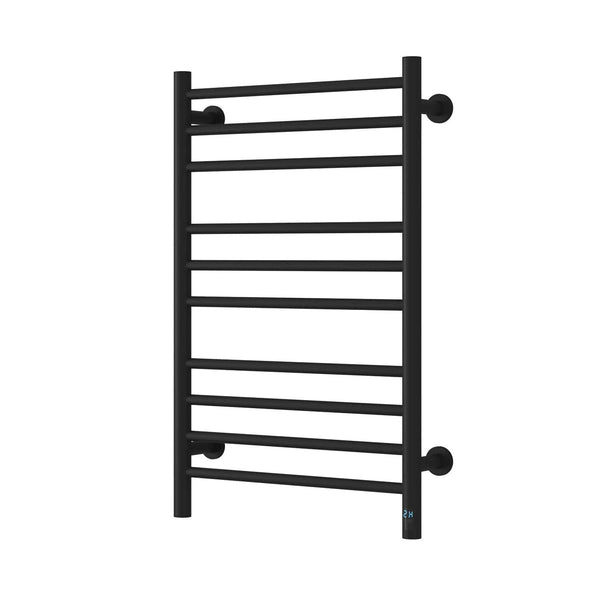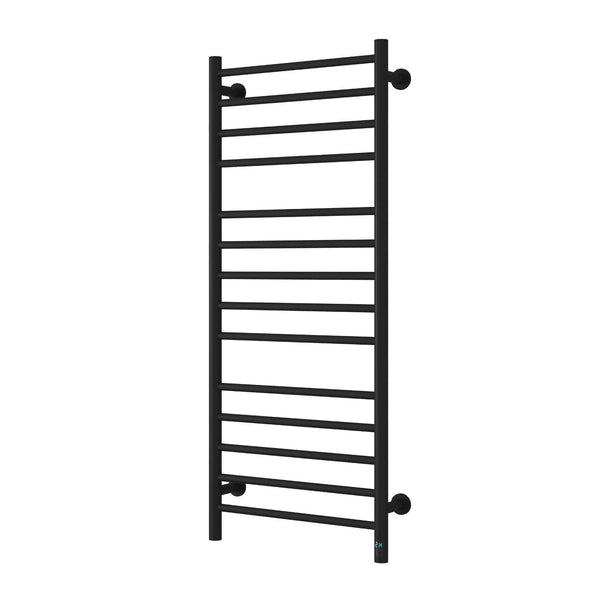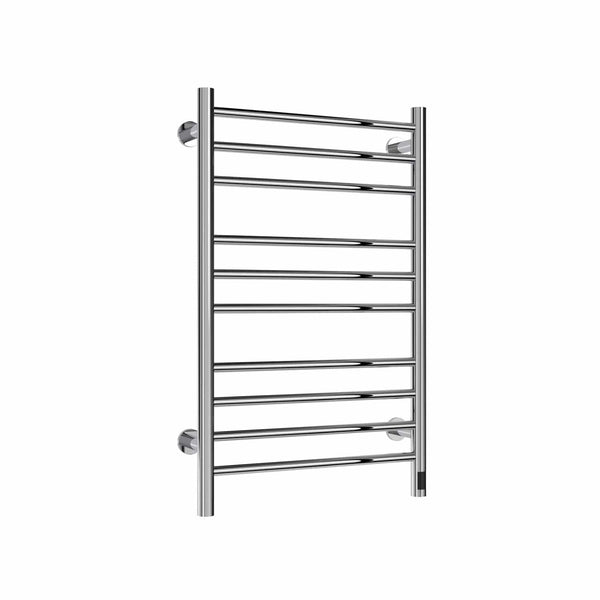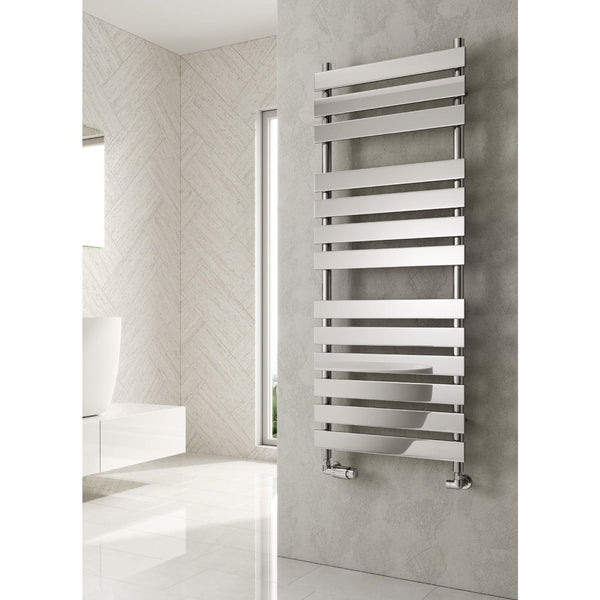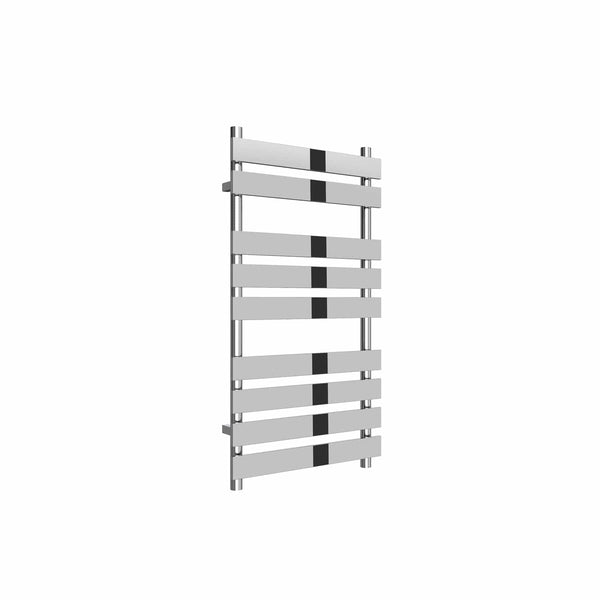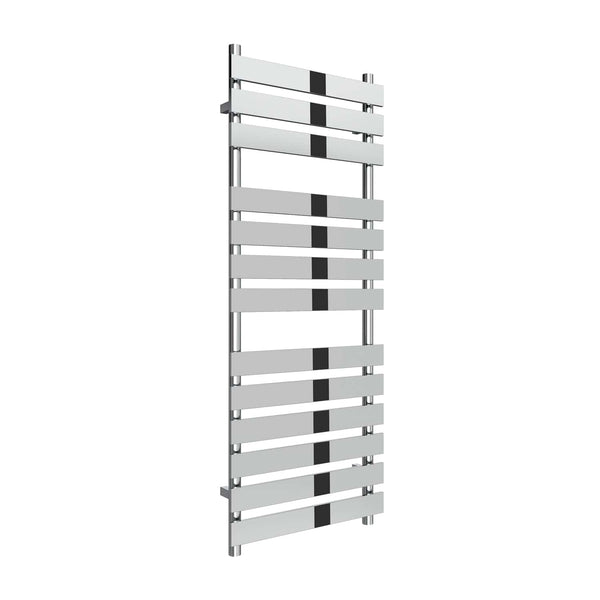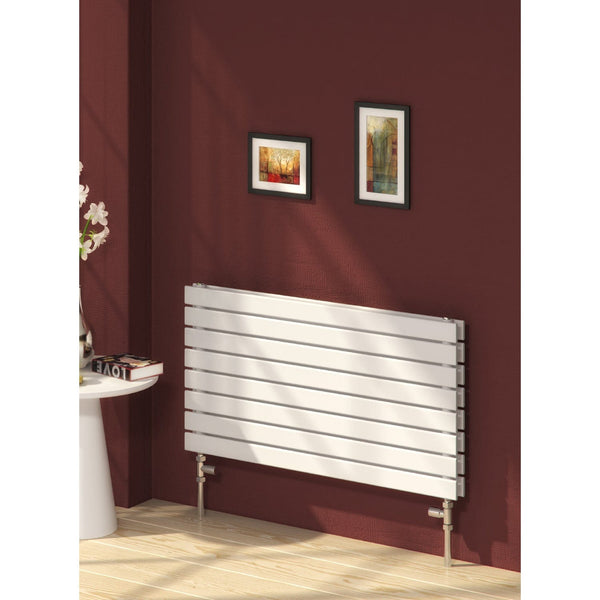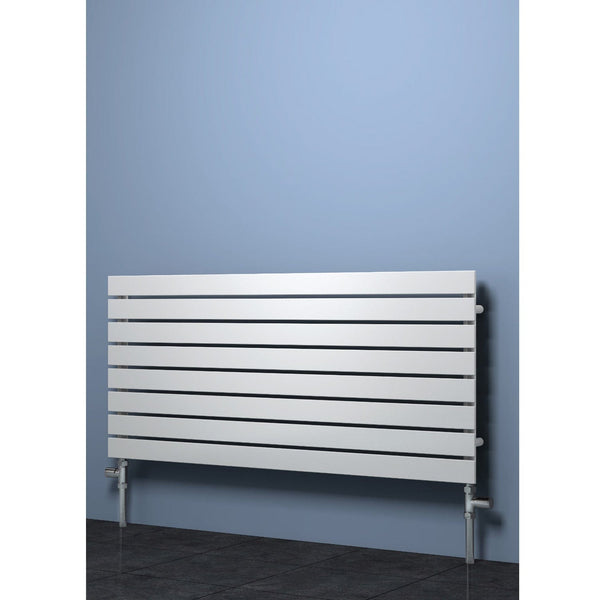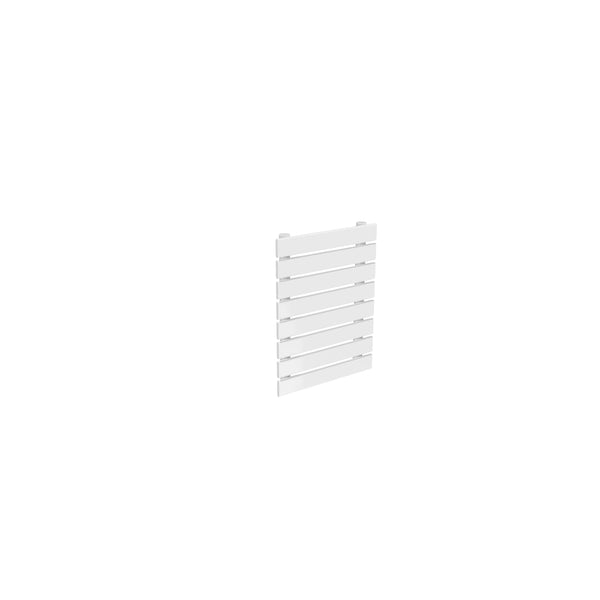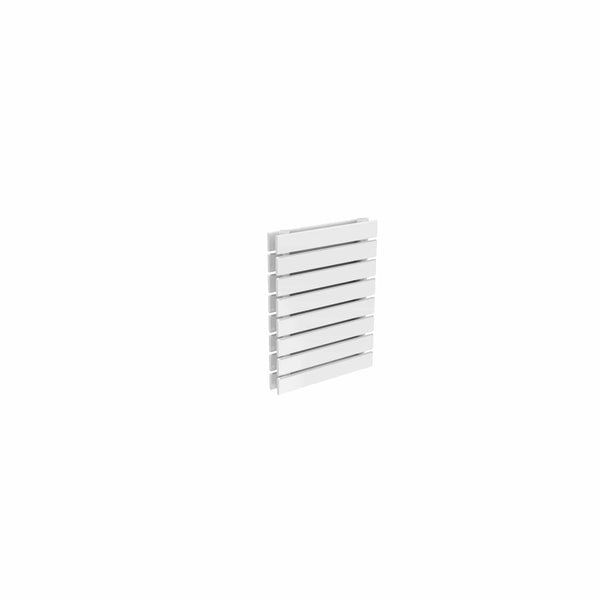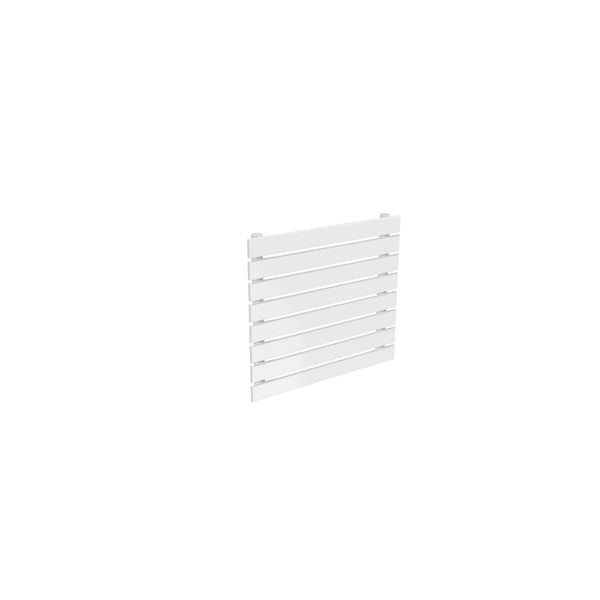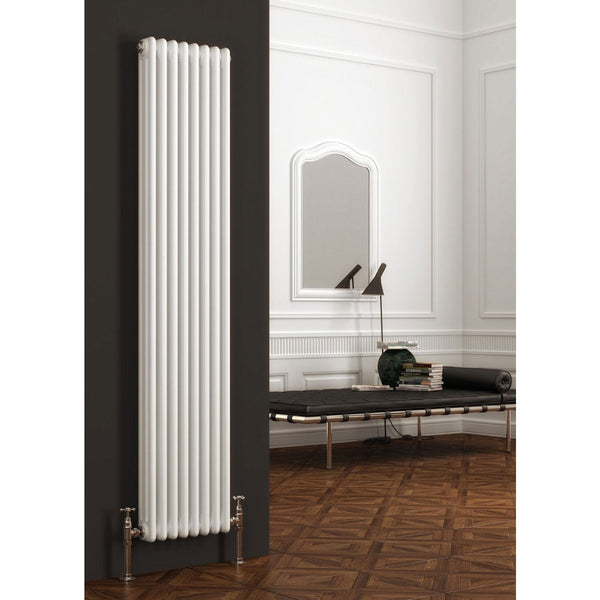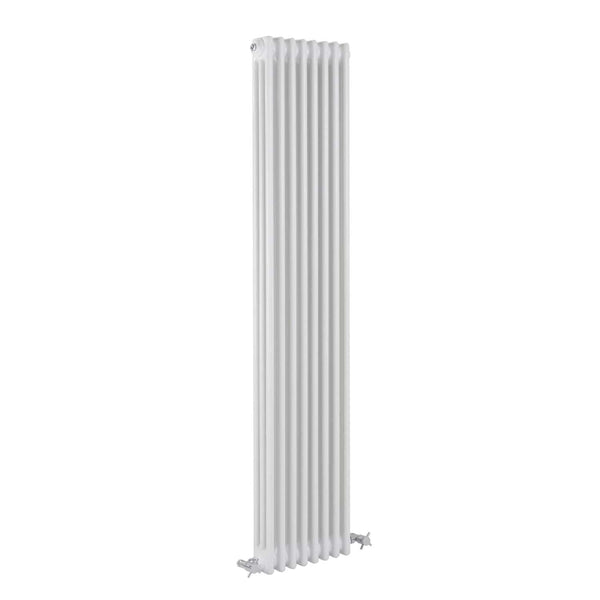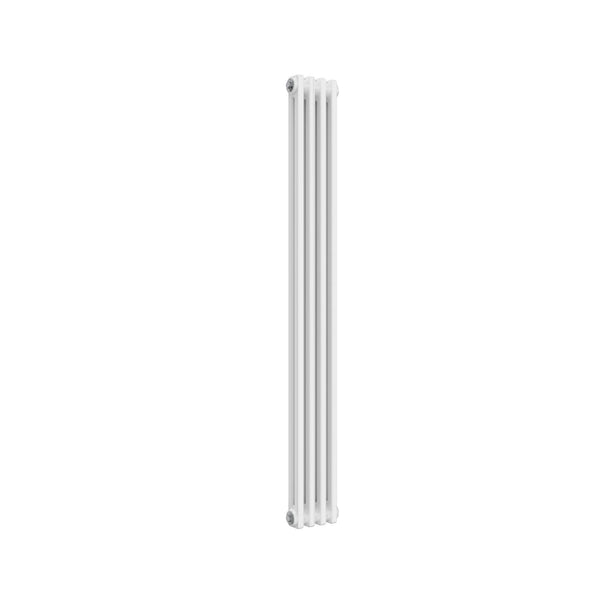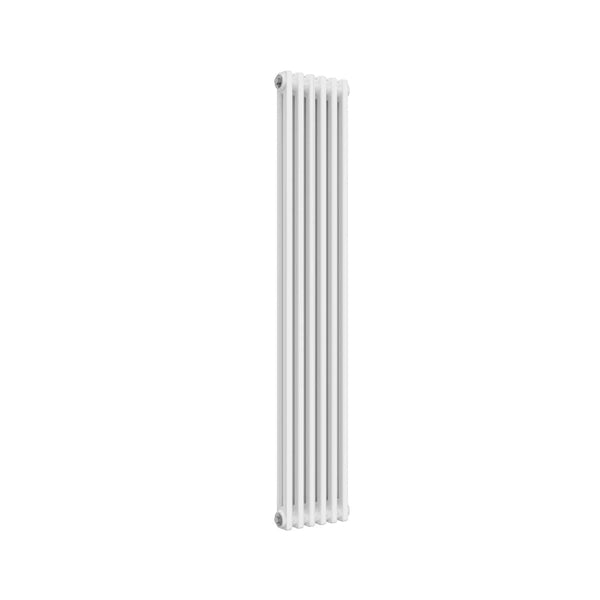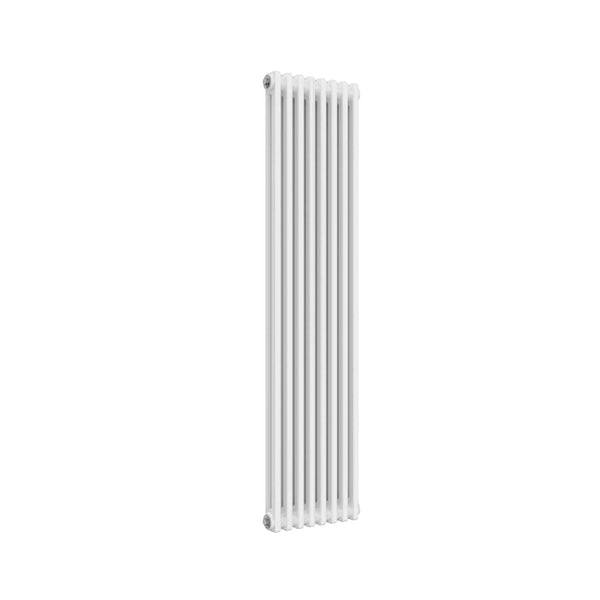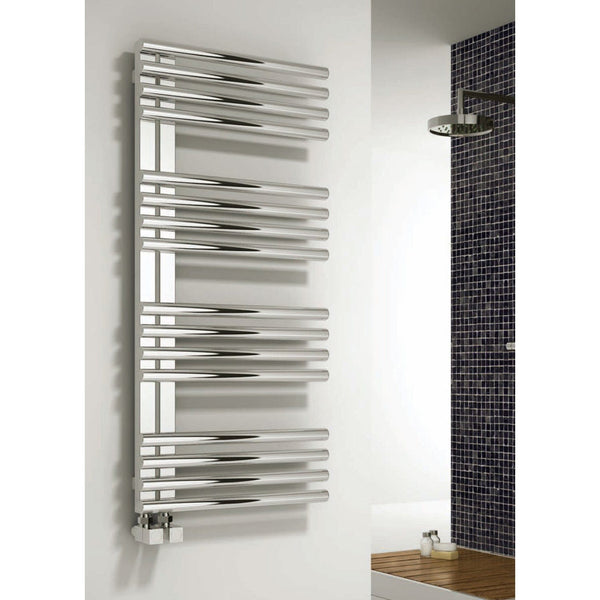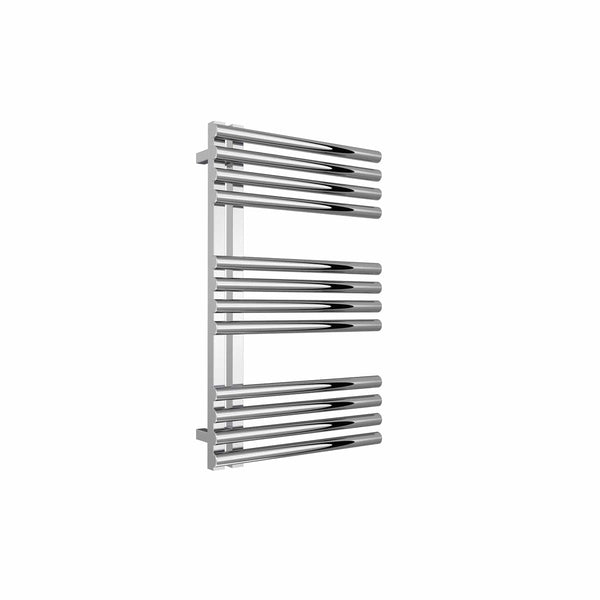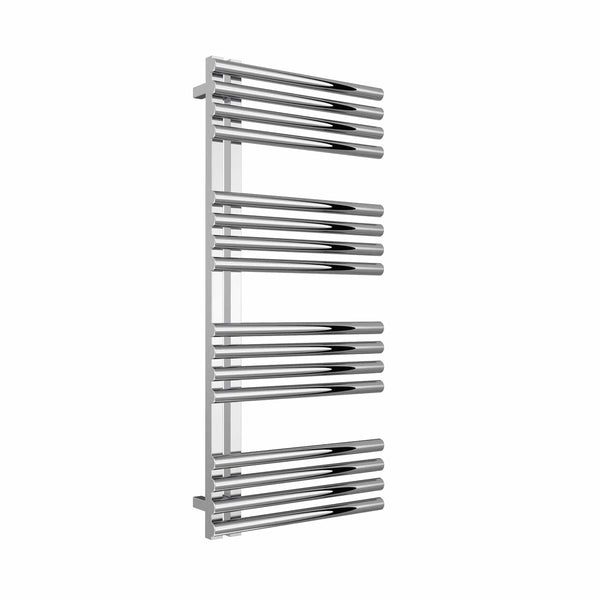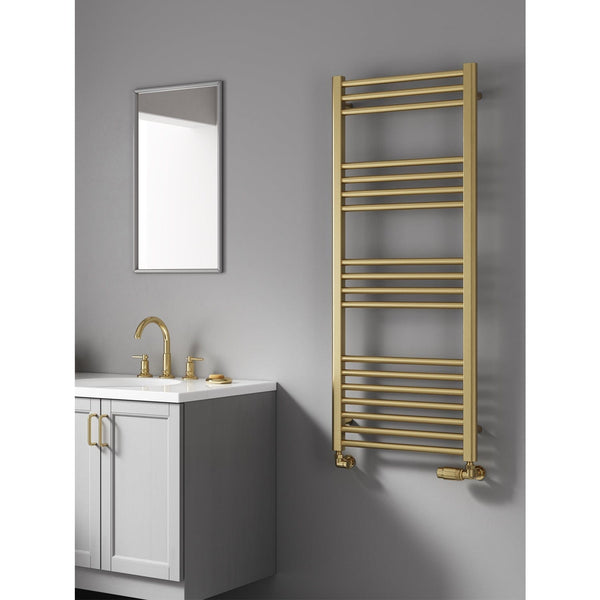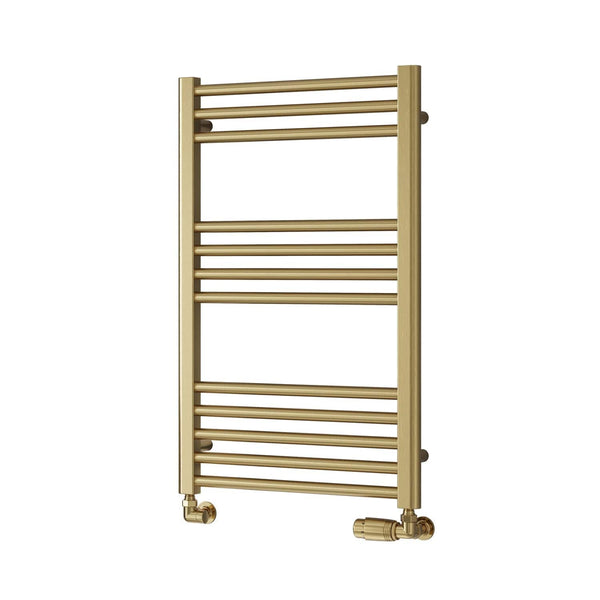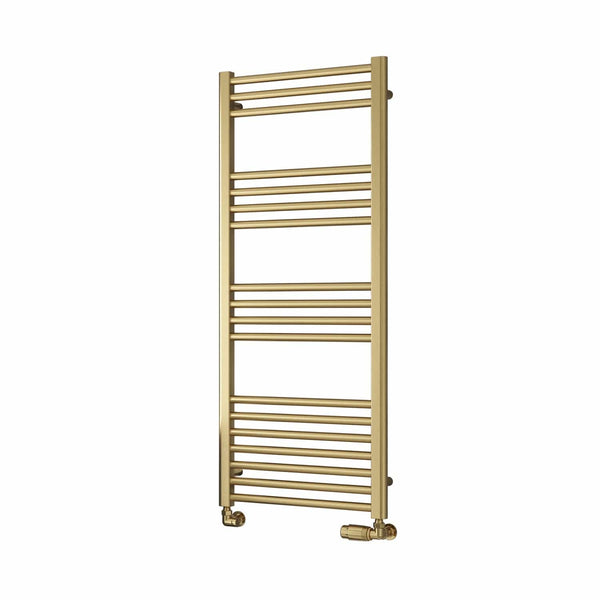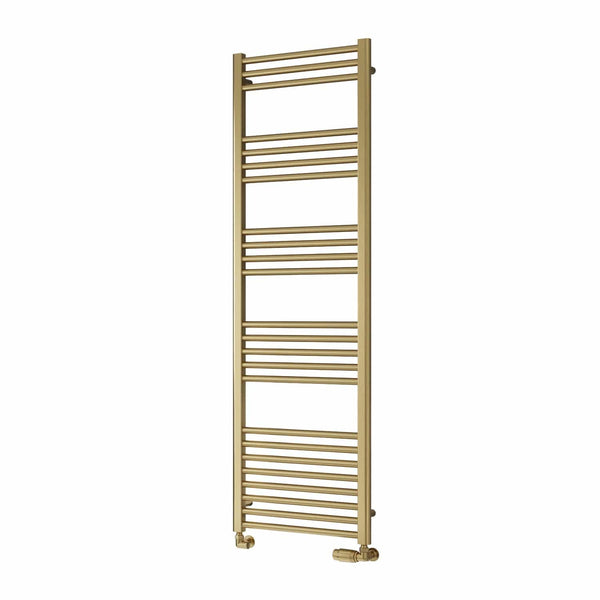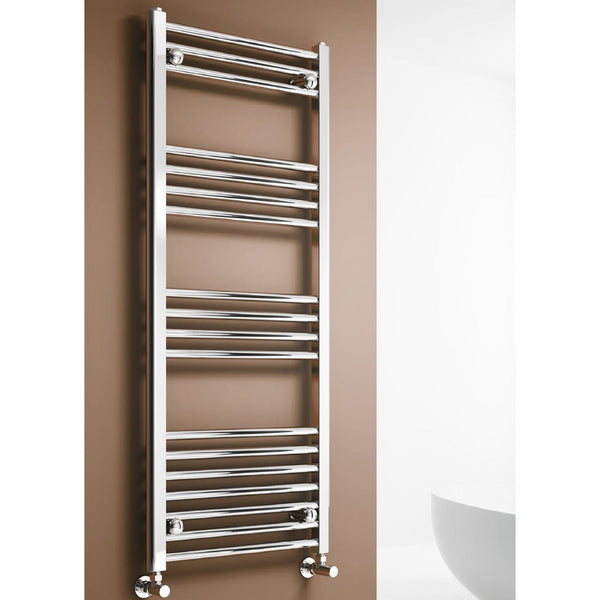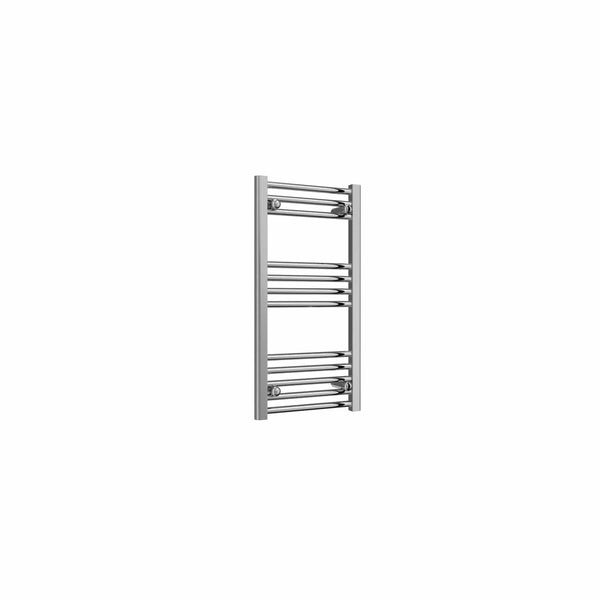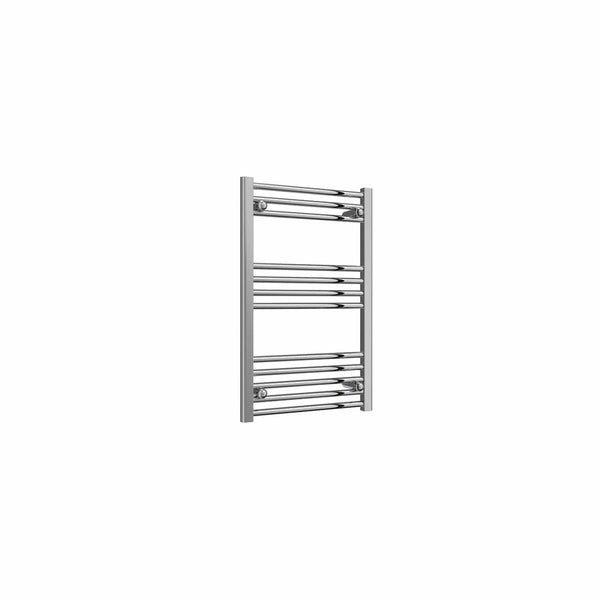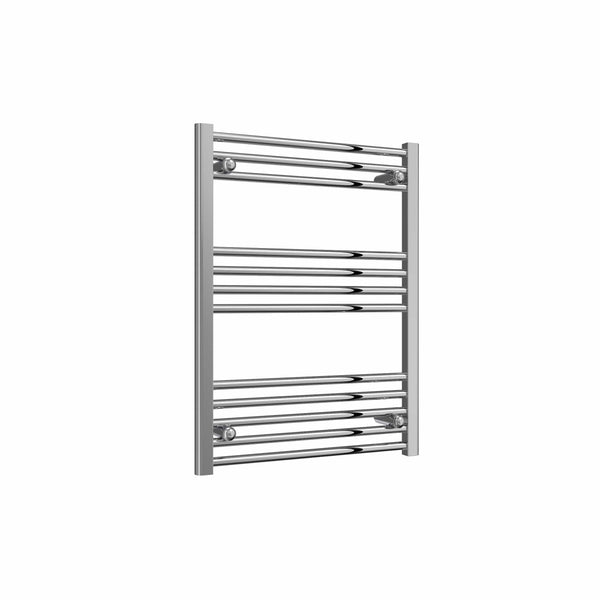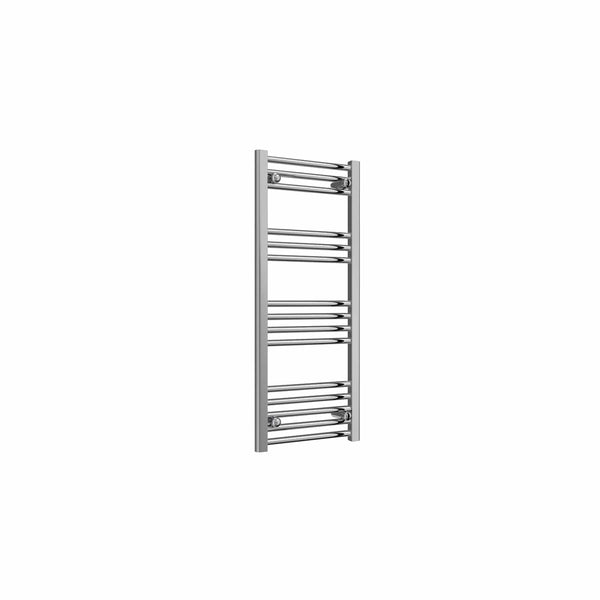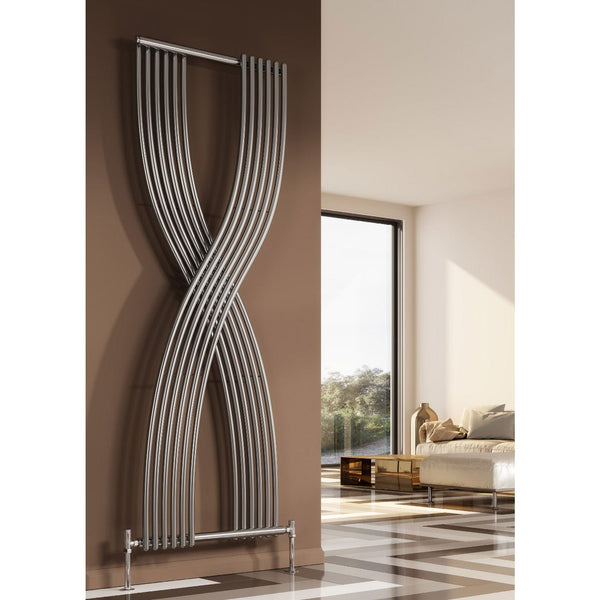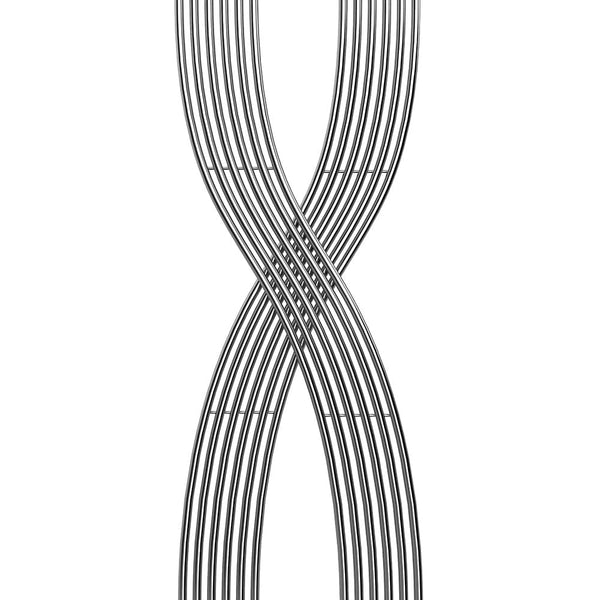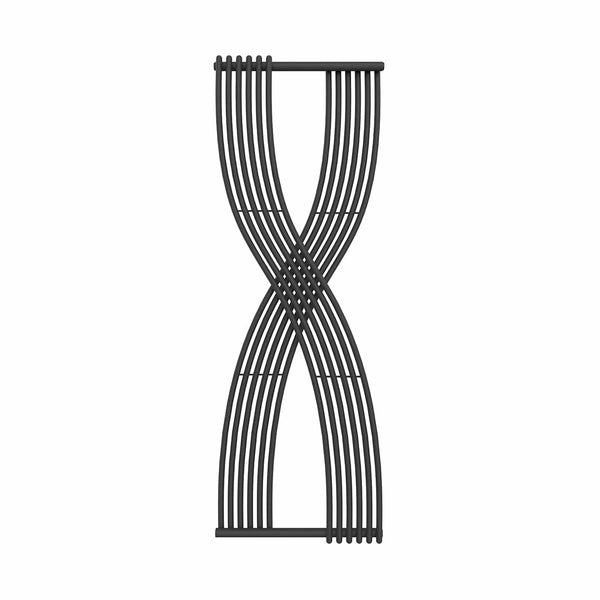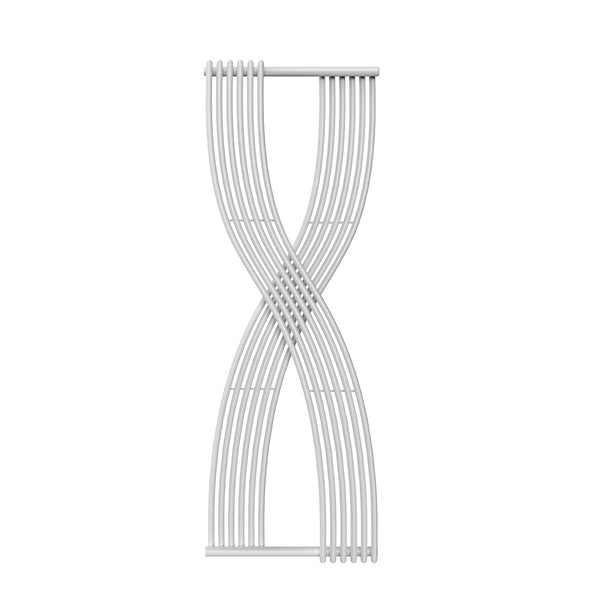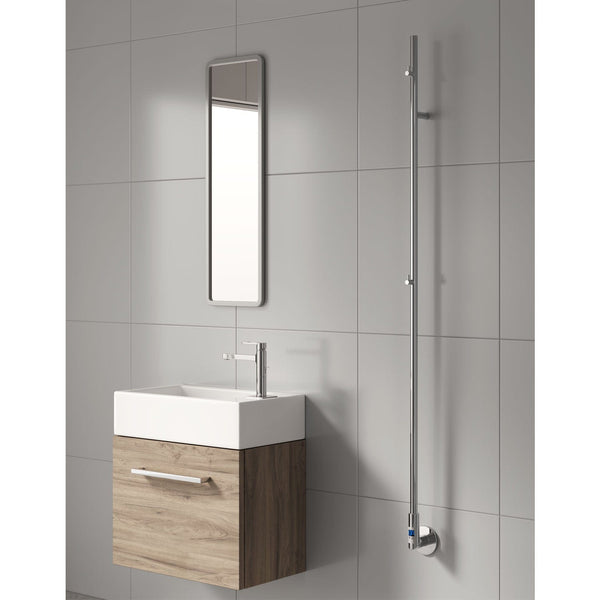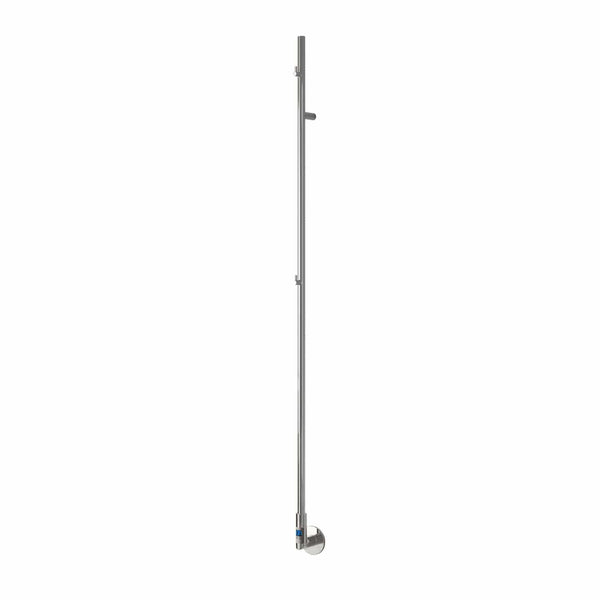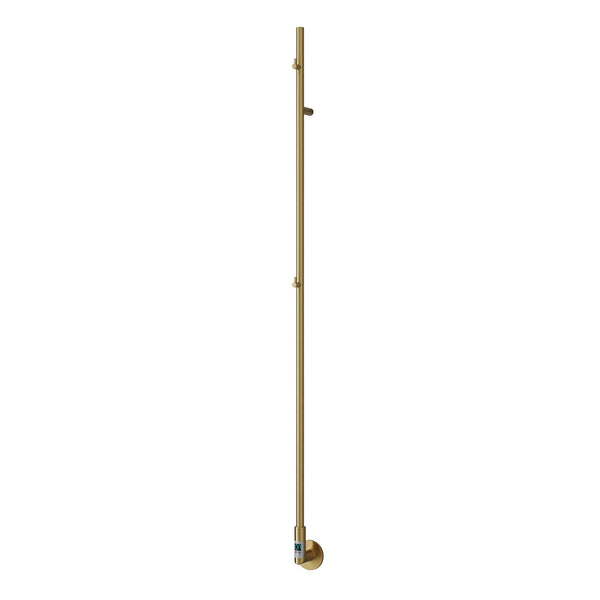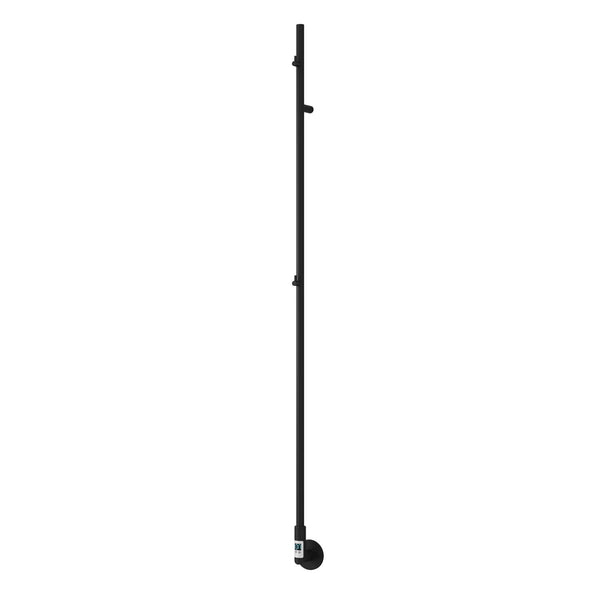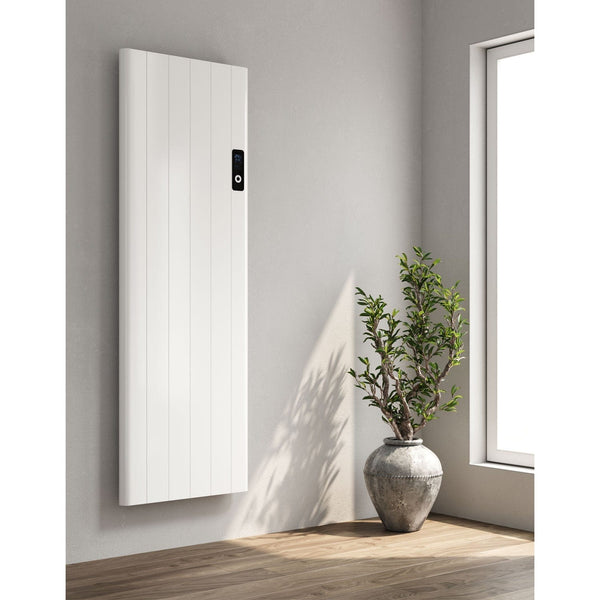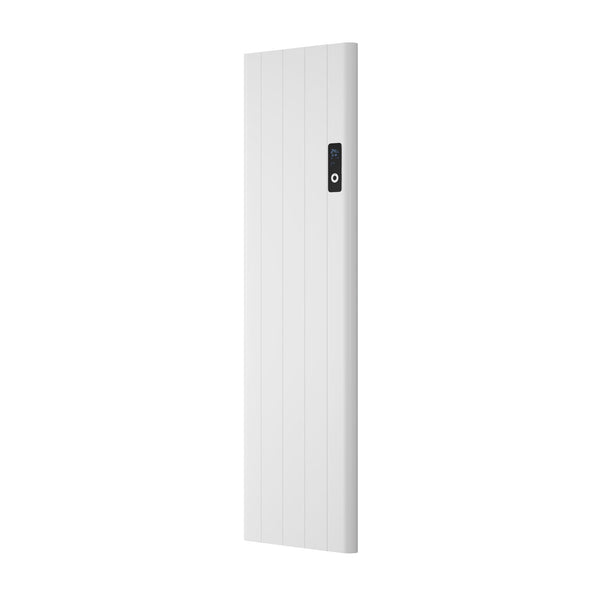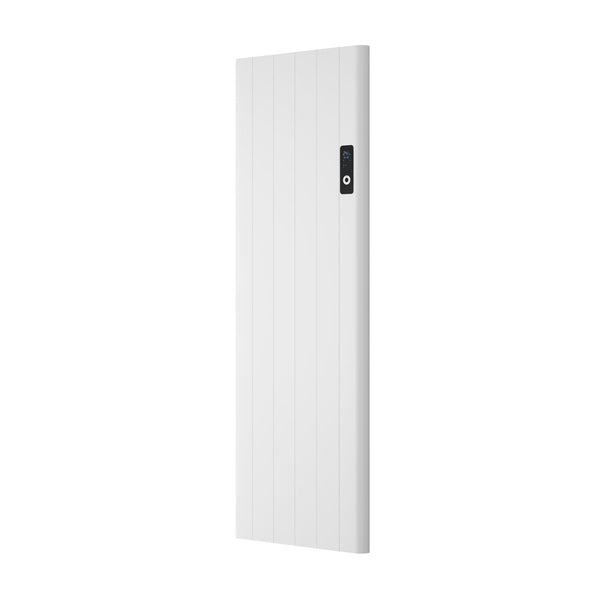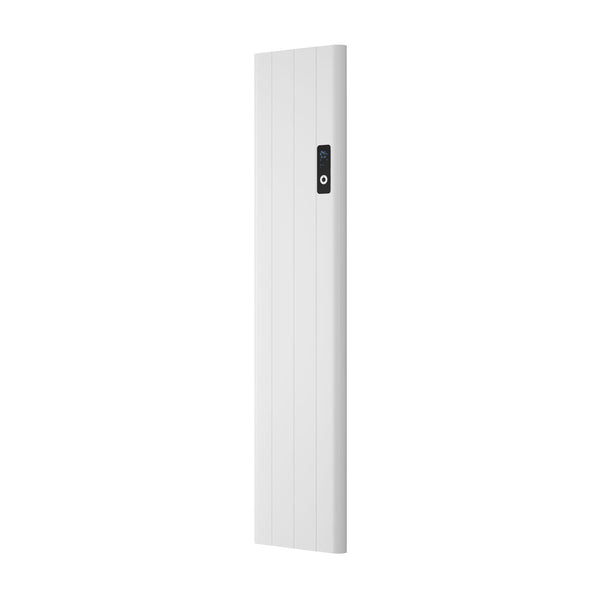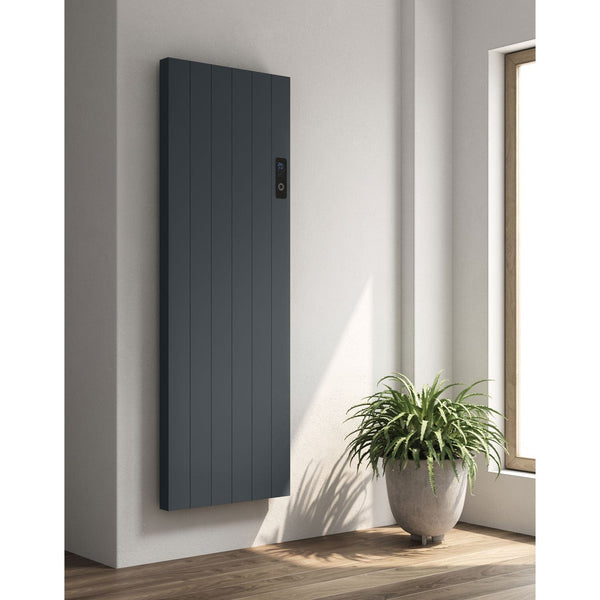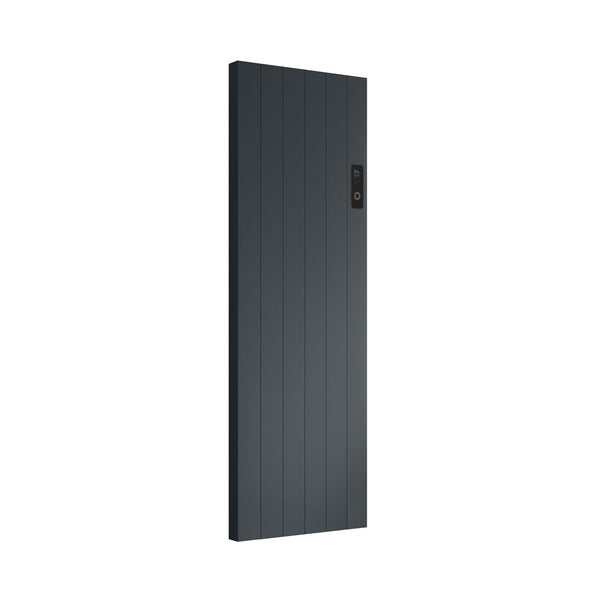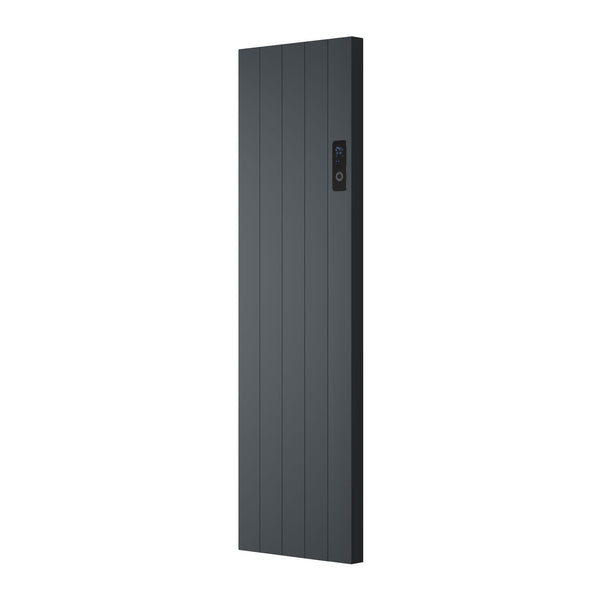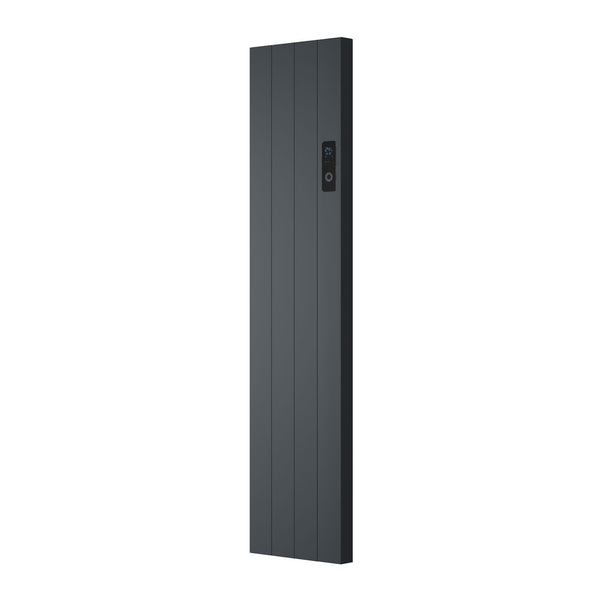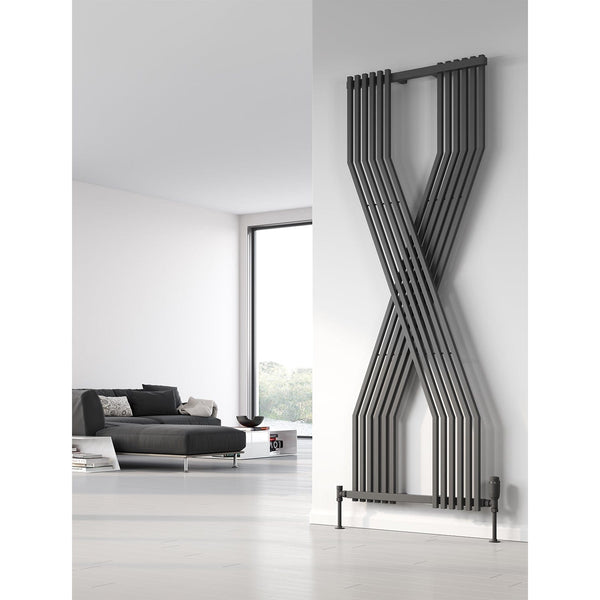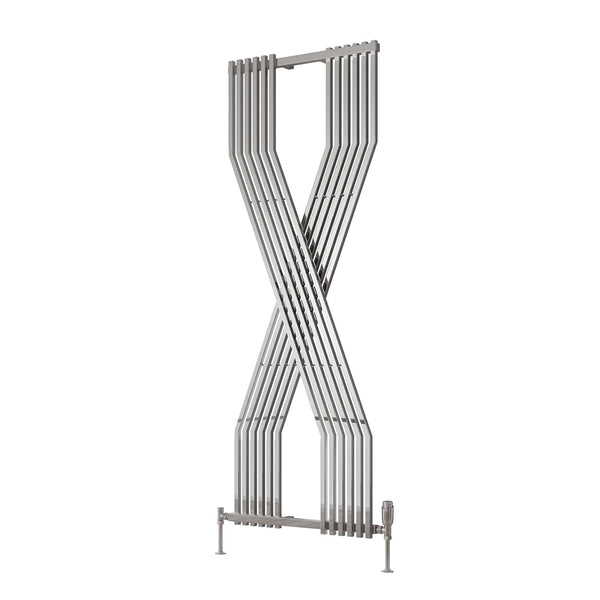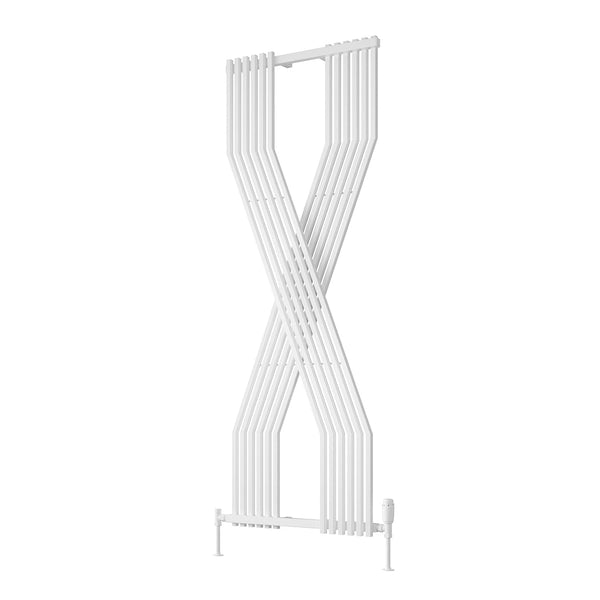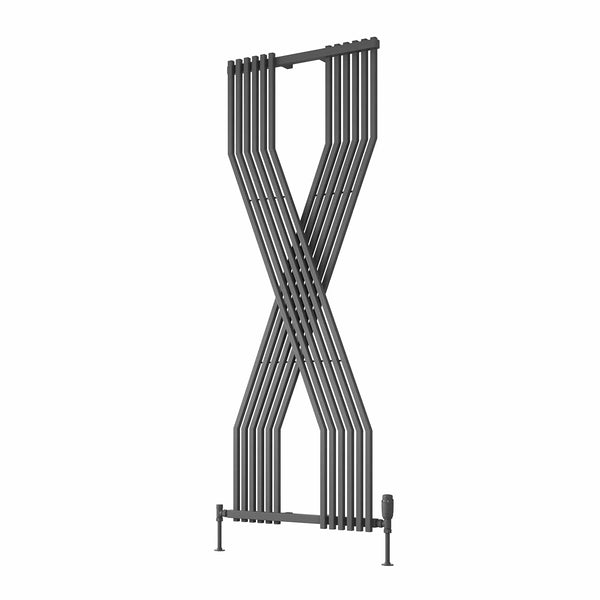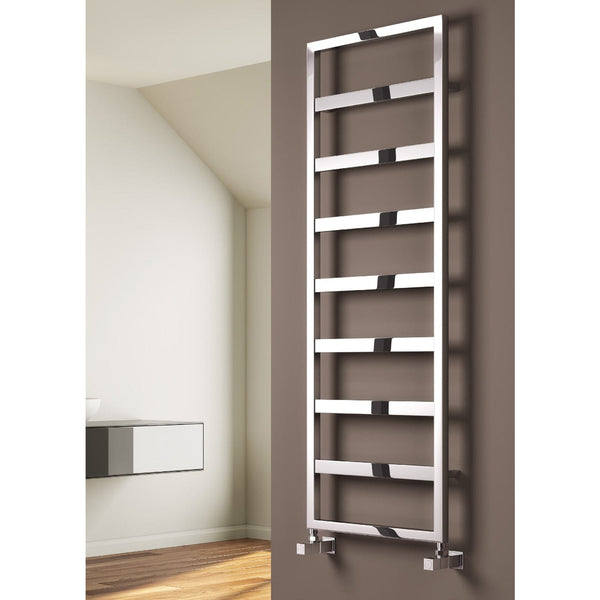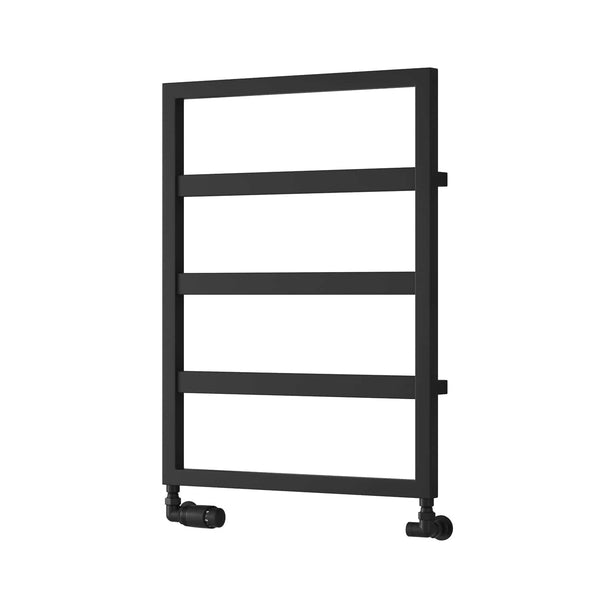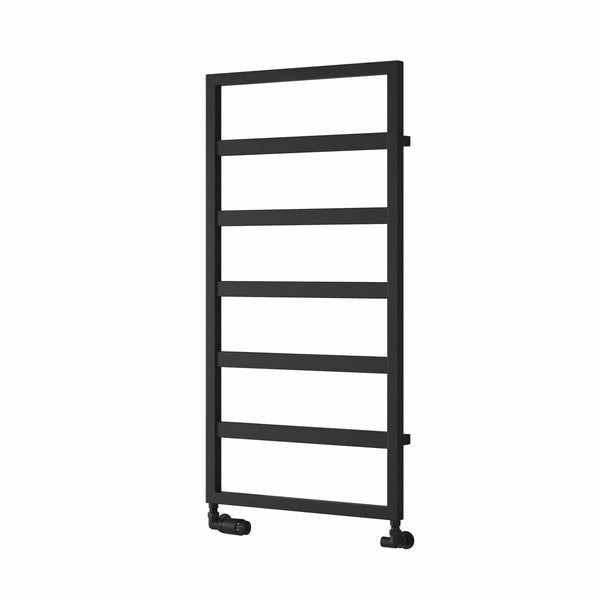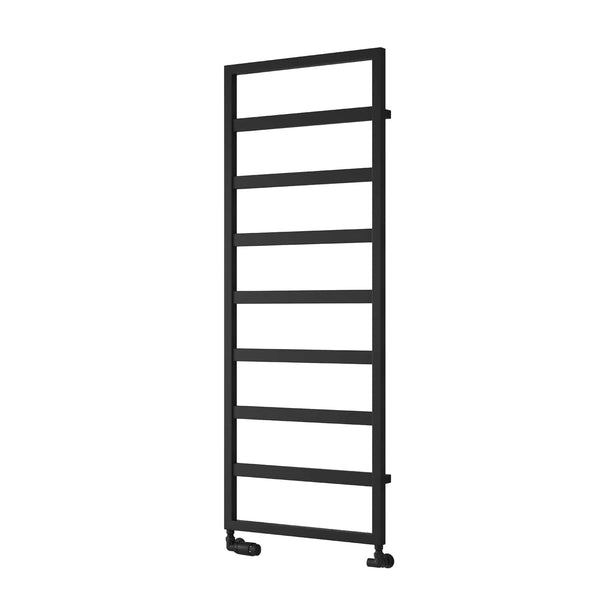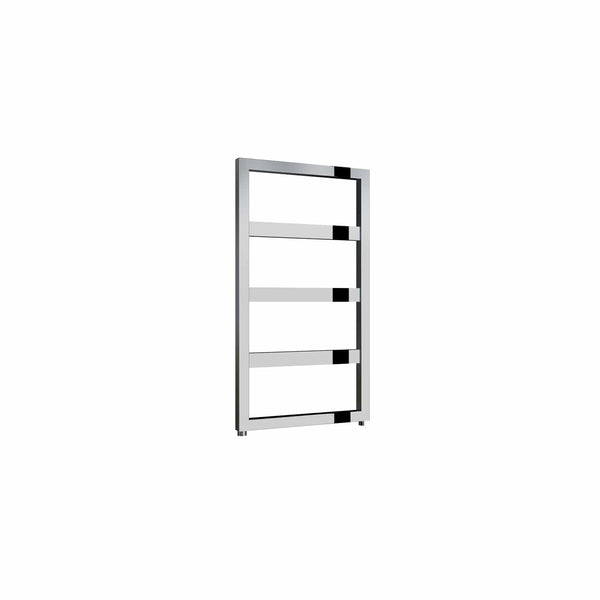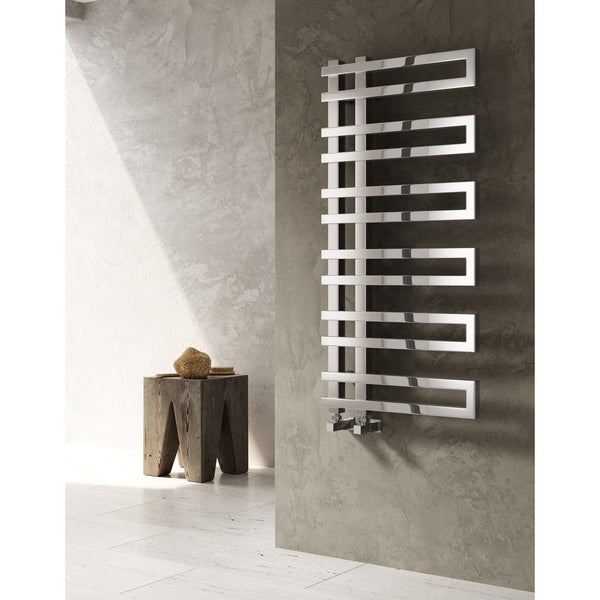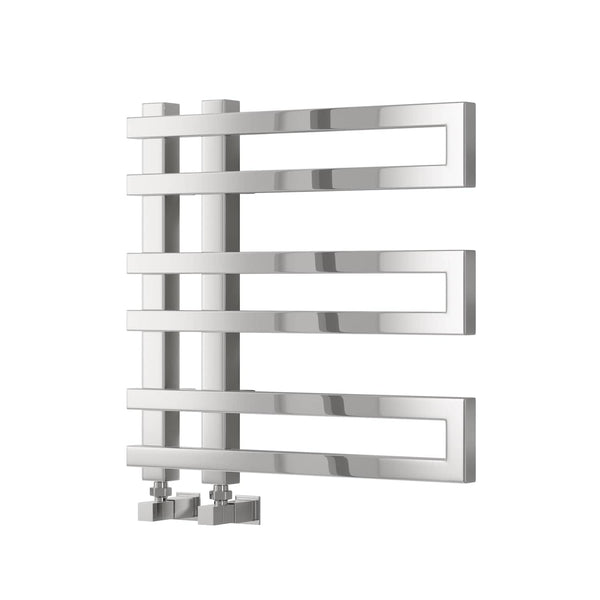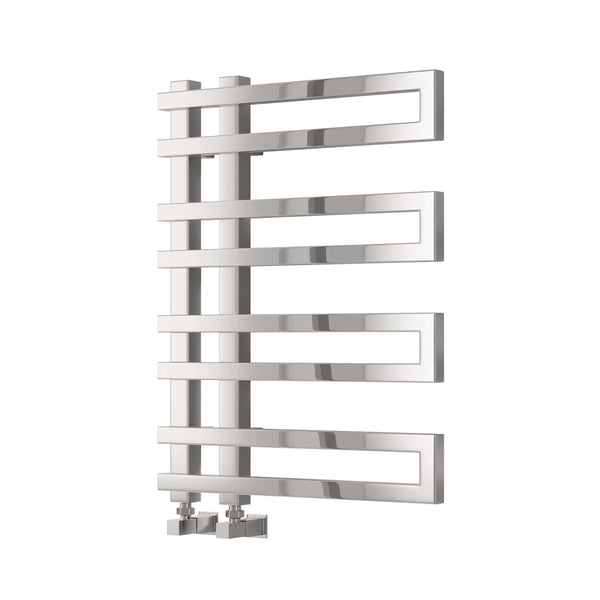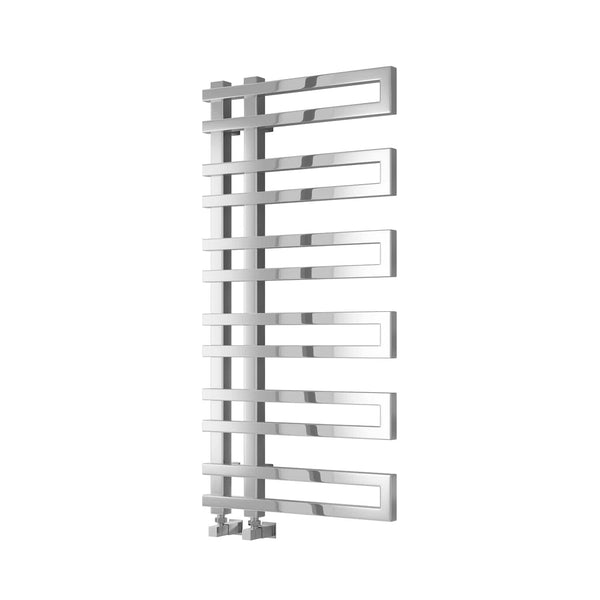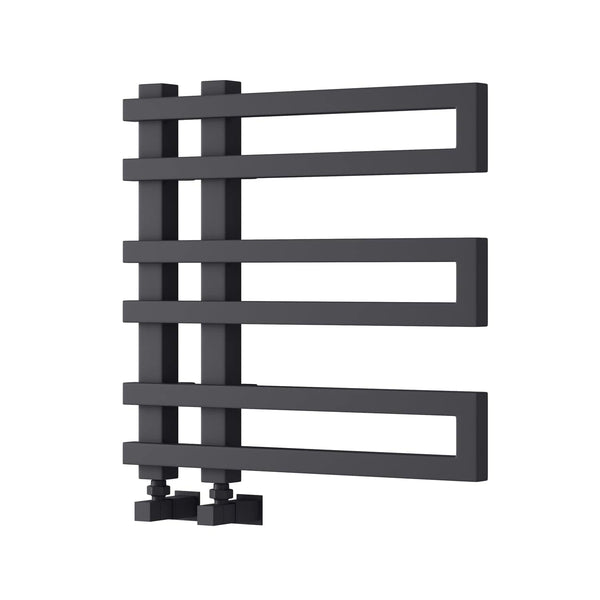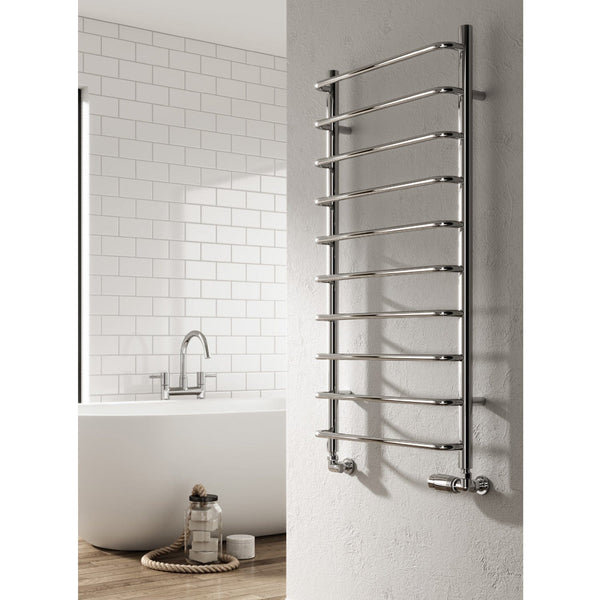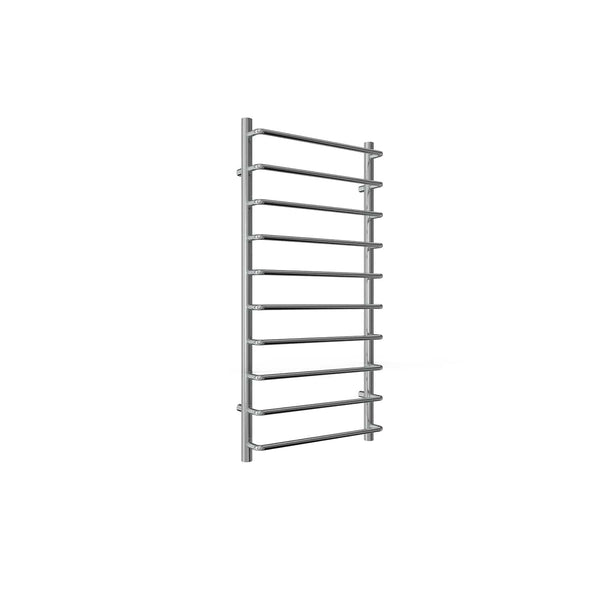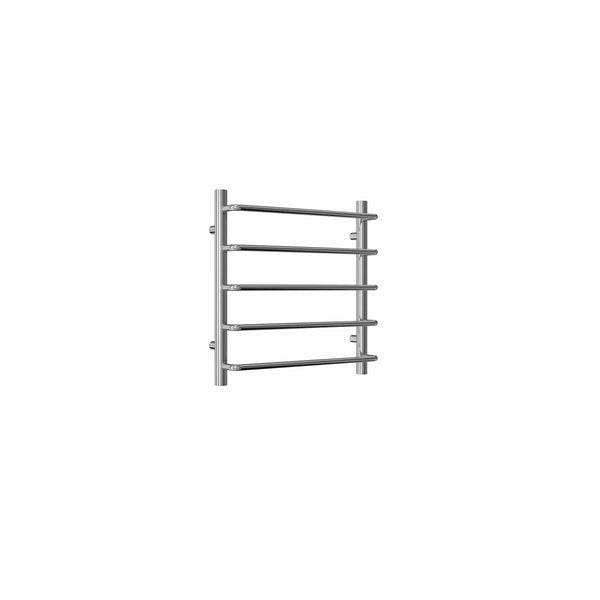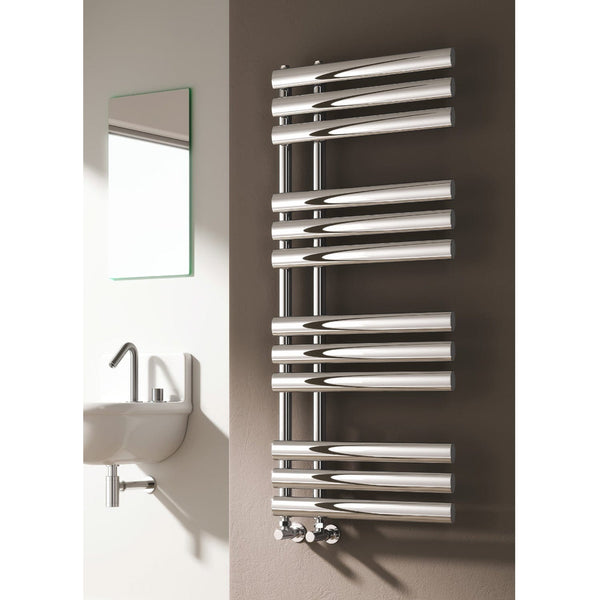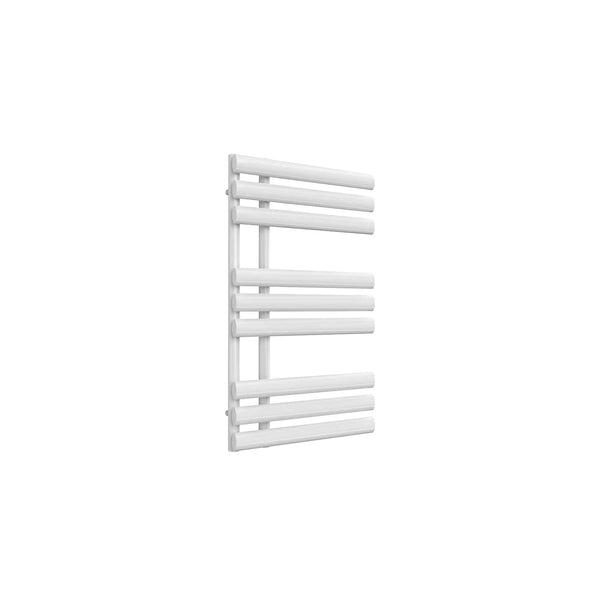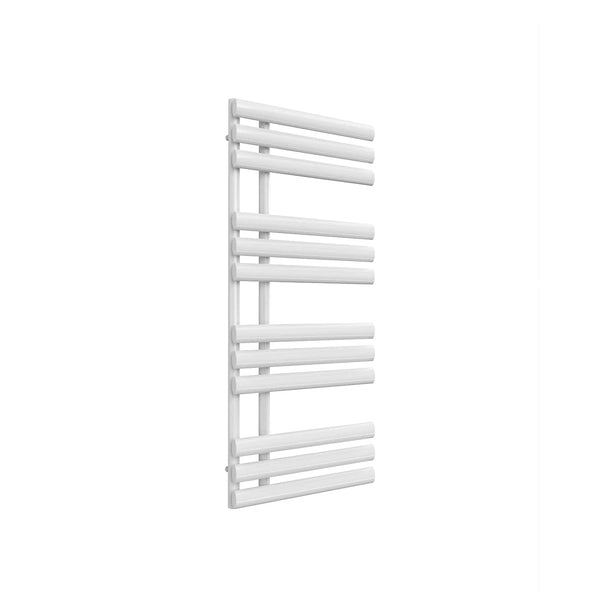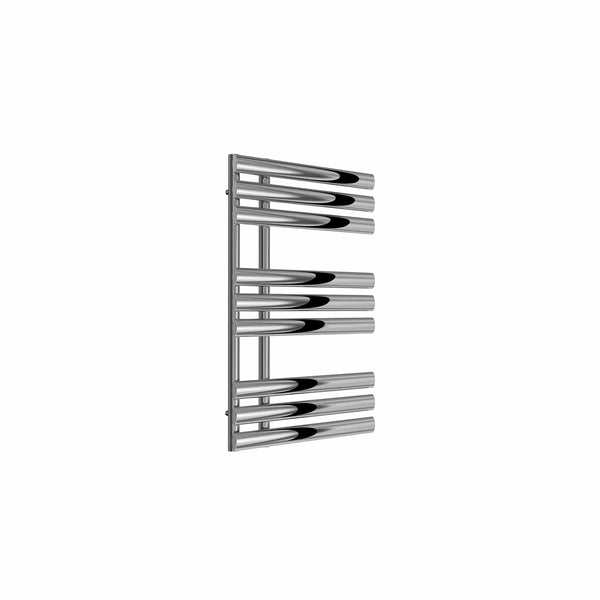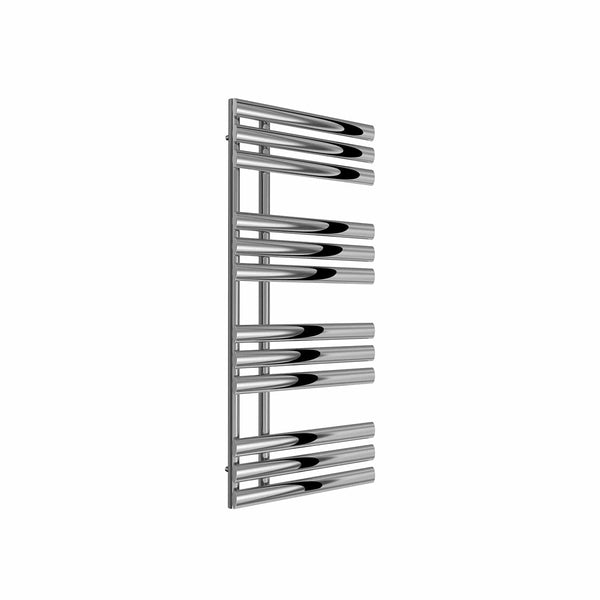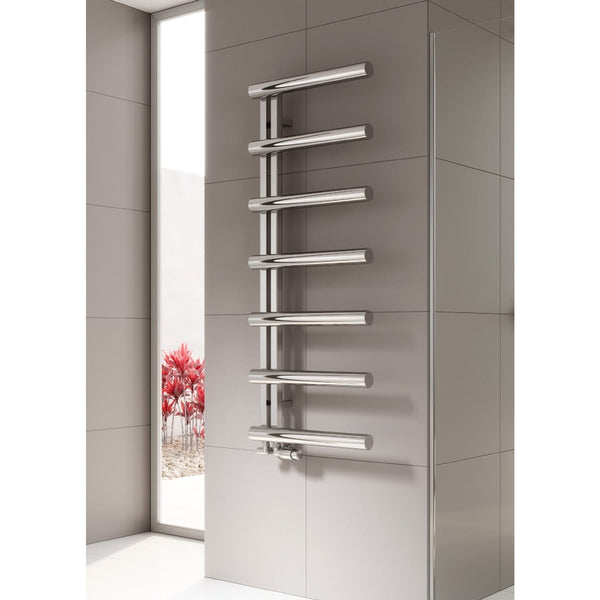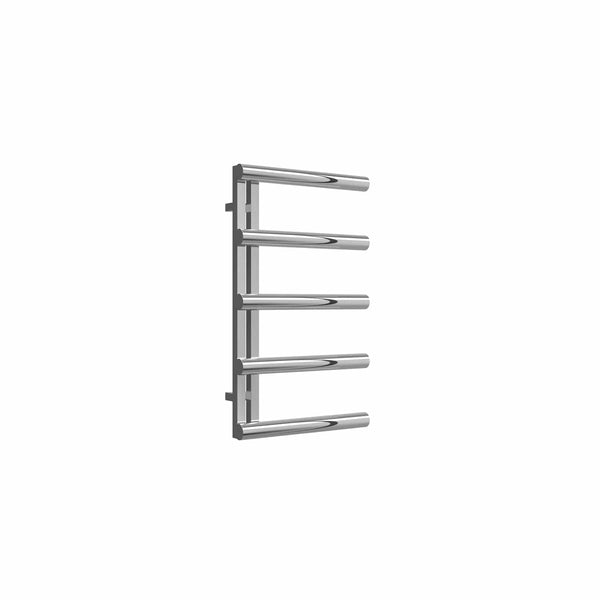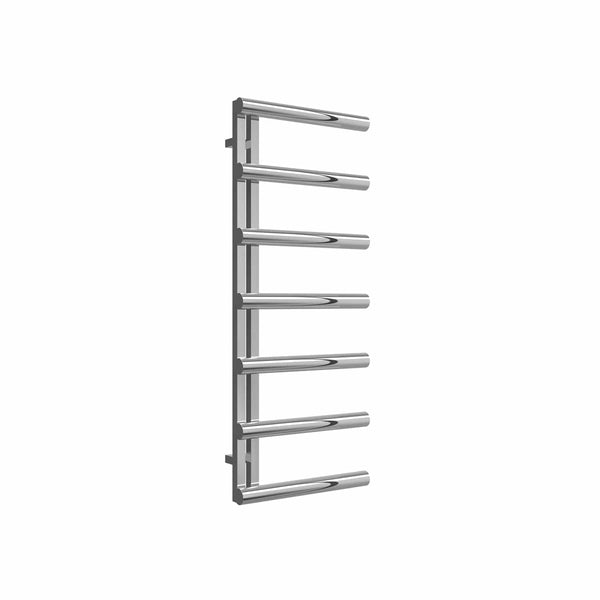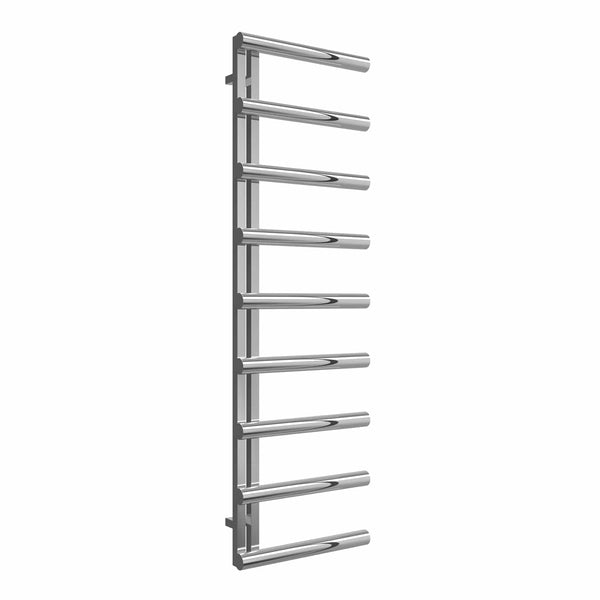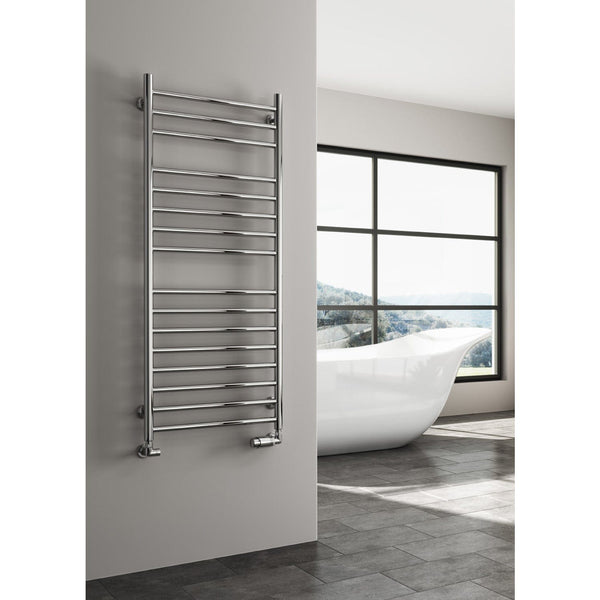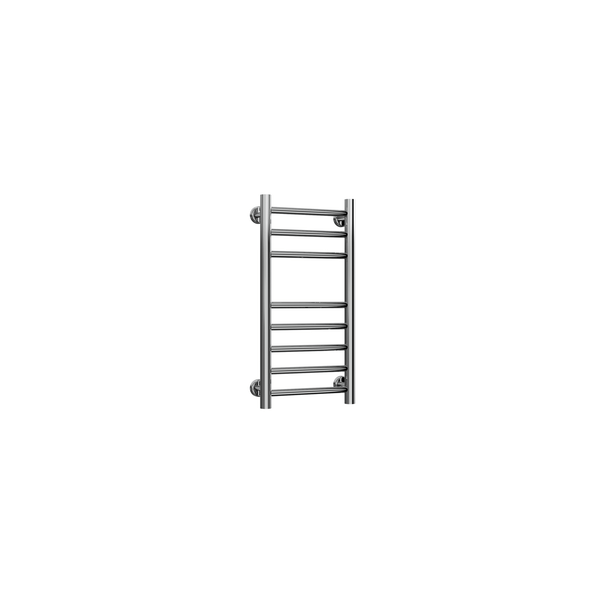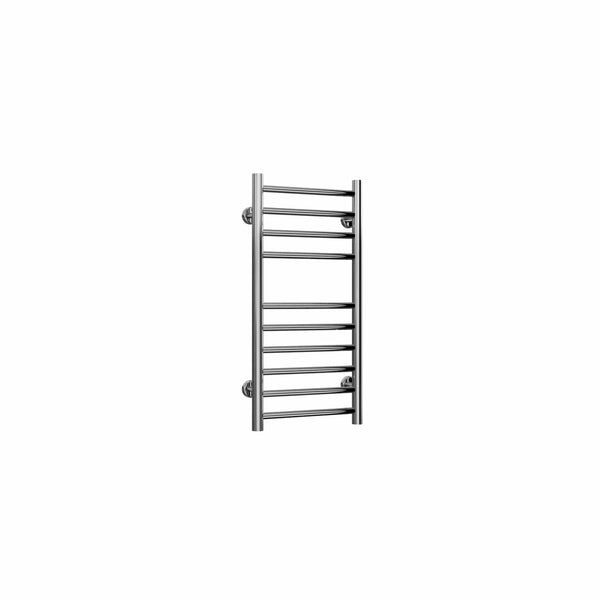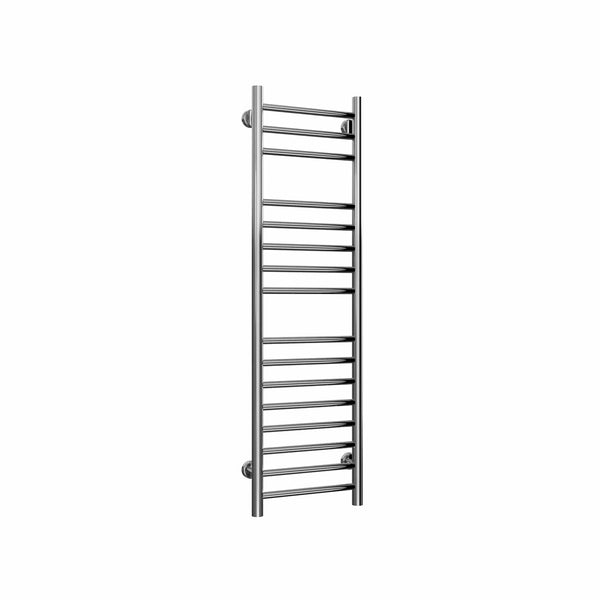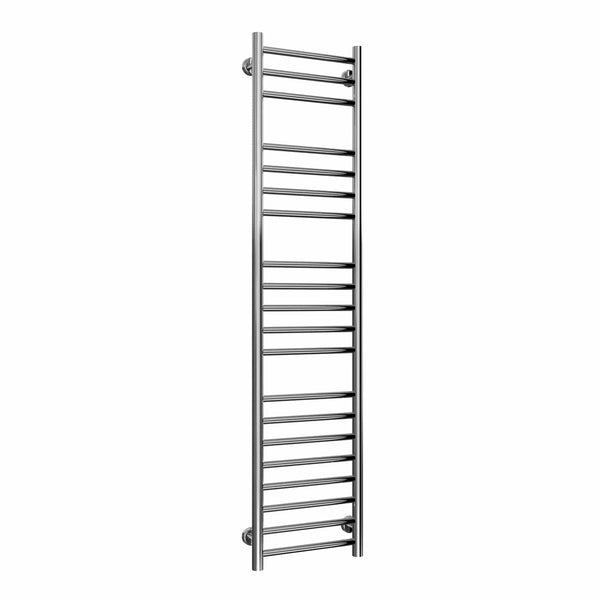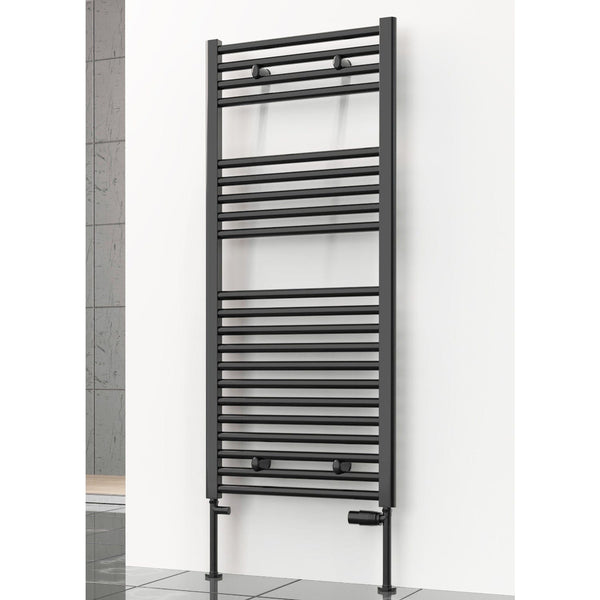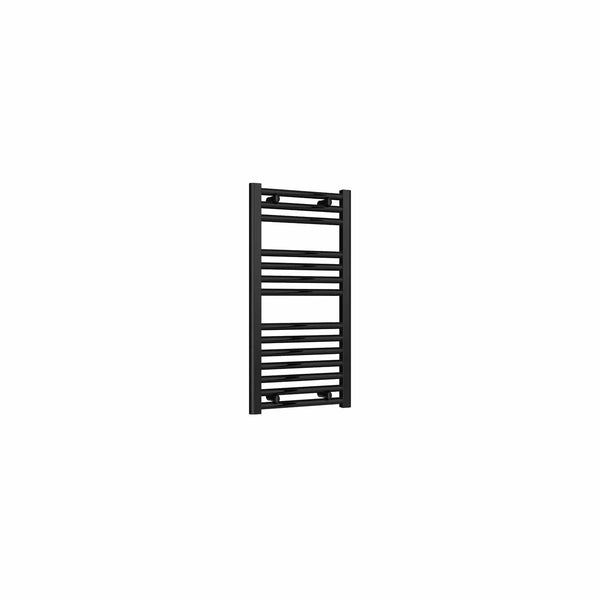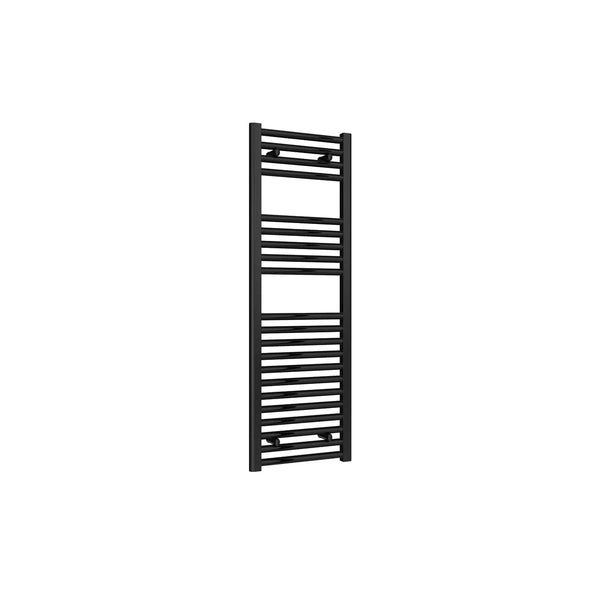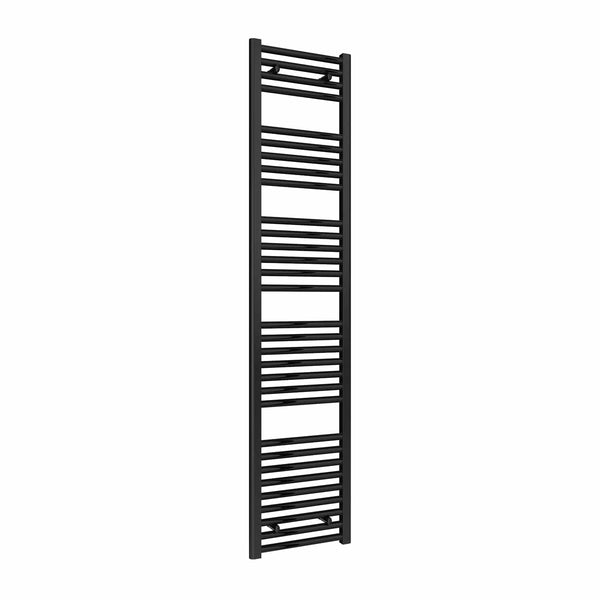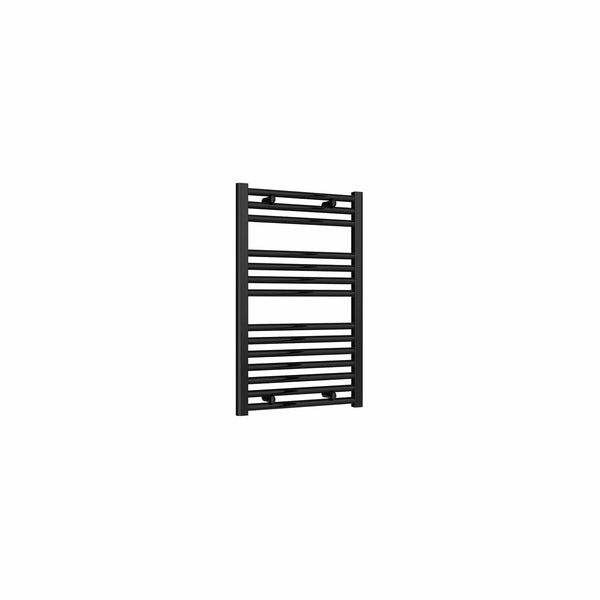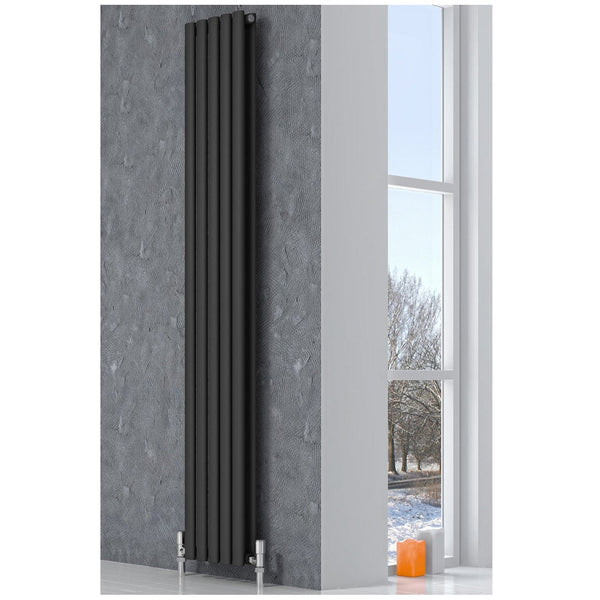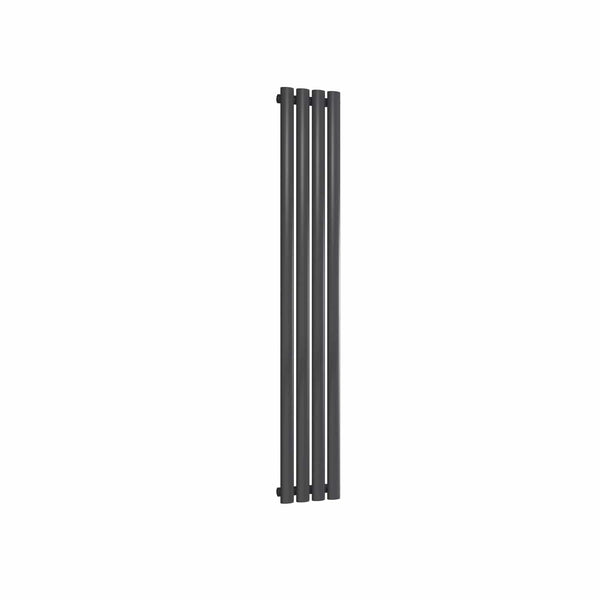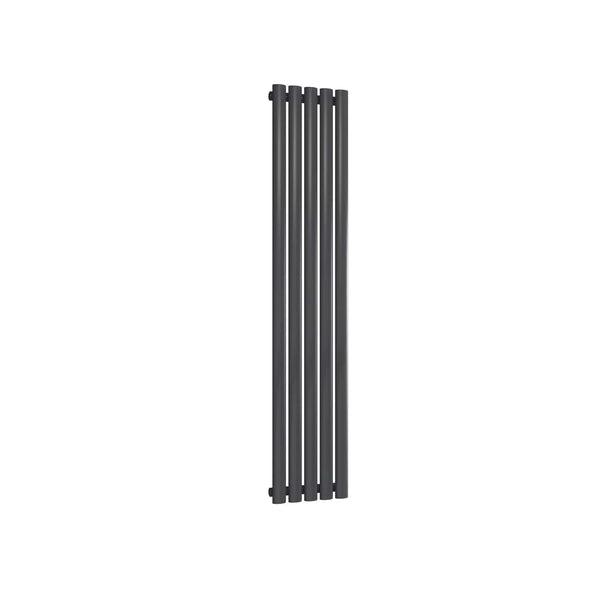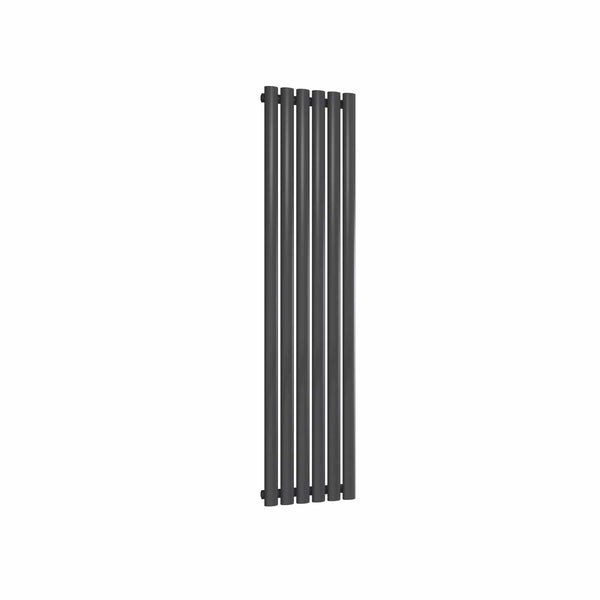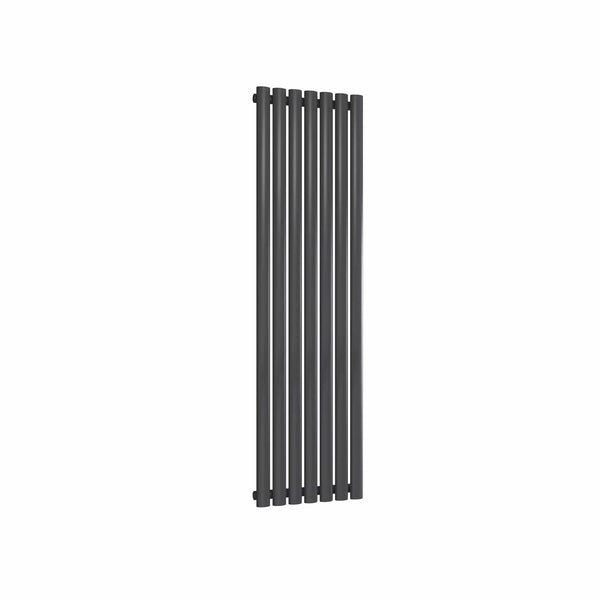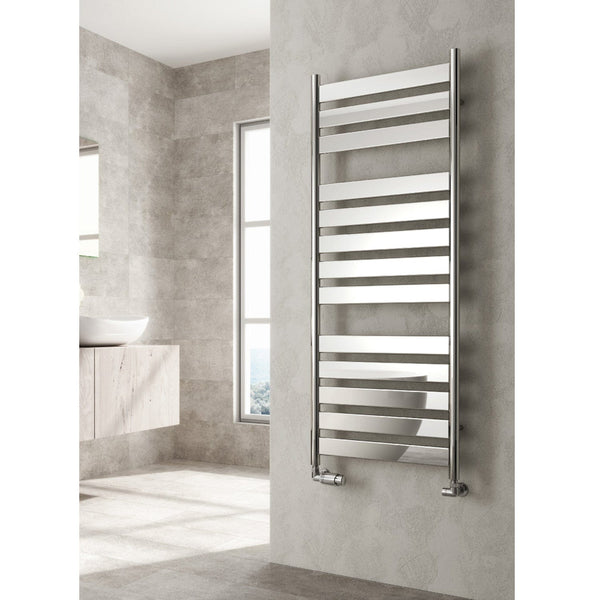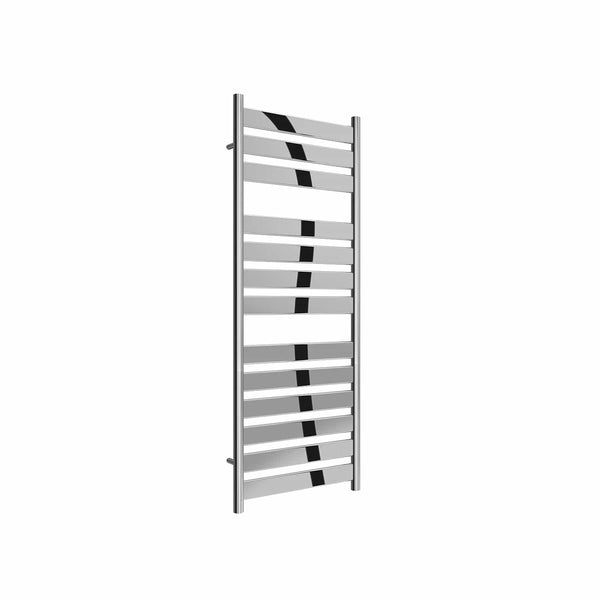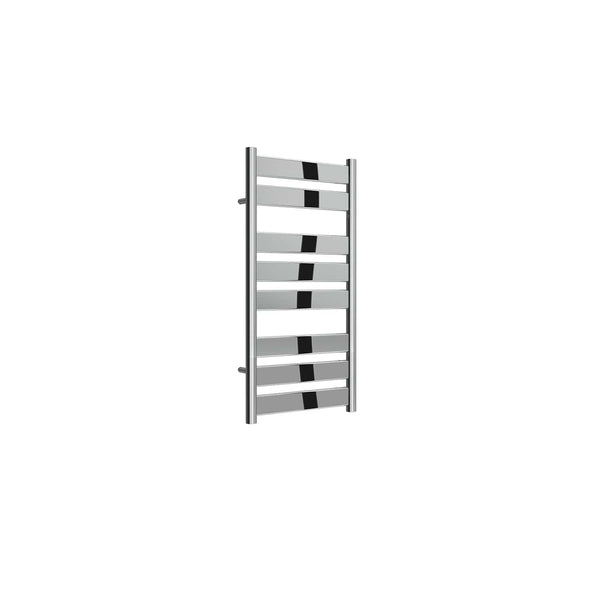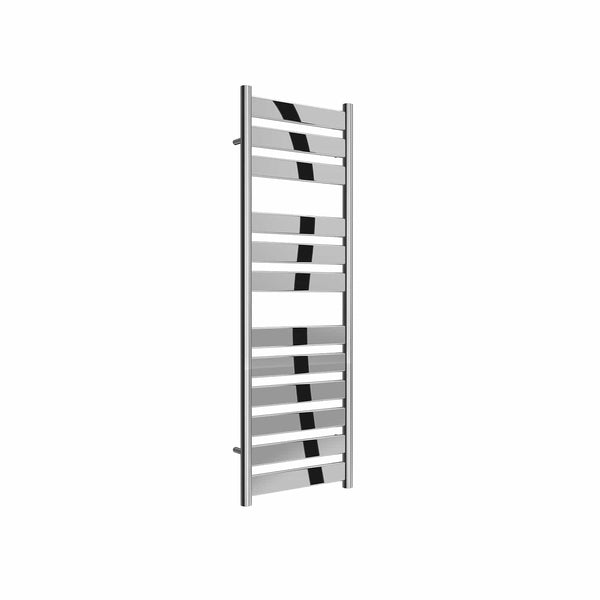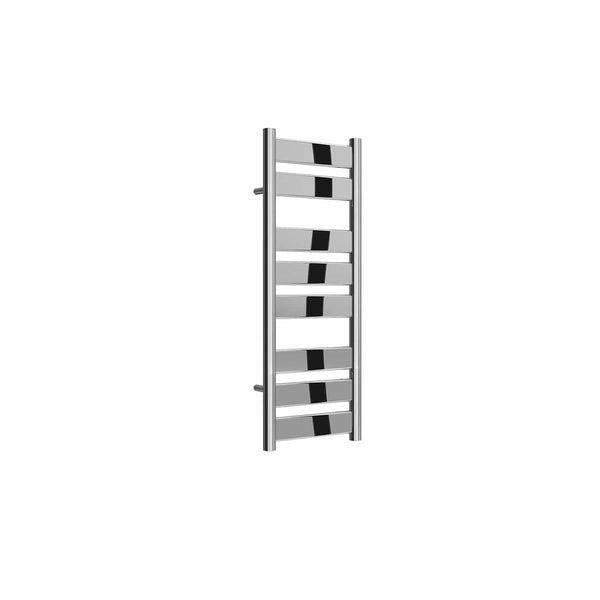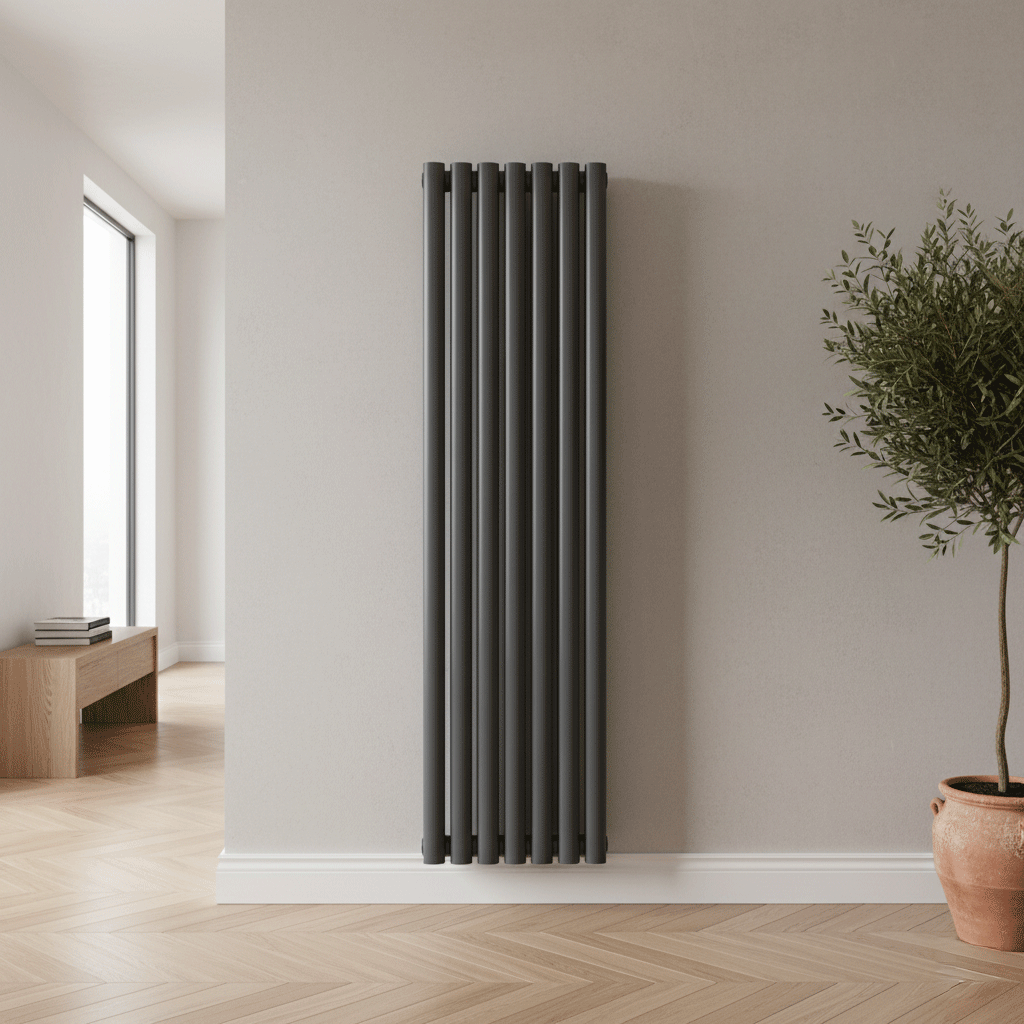
Designer Radiators
For decades, the humble radiator has been a purely functional, often overlooked, white box tucked away under a window. Its existence was a necessity, not a...
152 products
152 products
Filters
1 - 40 of 152 items
Designer Radiators
For decades, the humble radiator has been a purely functional, often overlooked, white box tucked away under a window. Its existence was a necessity, not a choice. Today, that perception has been completely transformed. The rise of the designer radiator marks a revolution in home heating, reimagining the radiator as a stunning architectural feature, a sophisticated focal point, and a true expression of personal style.
A designer radiator is where high performance engineering meets artistic innovation. It’s a conscious decision to move beyond the conventional and embrace heating as an integral part of your interior design scheme. Whether it’s a towering vertical radiator adding drama to a hallway, a sleek horizontal model making a statement in your living room, or a raw metal column radiator bringing industrial chic to your kitchen, these pieces are designed to be seen and celebrated.
This definitive guide will explore the exciting world of designer radiators. We will delve into the innovative materials, unconventional shapes, and stunning finishes that define this category. We'll demystify the technical aspects, from BTU to installation, and showcase how choosing the right designer radiator can not only warm your home efficiently but also significantly elevate its aesthetic and financial value.
What Truly Defines a Designer Radiator?
A designer radiator is distinguished from a standard panel radiator by four key elements: its form, its finish, its build quality, and its ability to challenge convention.
- Innovative Shapes & Orientations: This is the most noticeable characteristic. Designer radiators break free from the traditional low-and-wide format. Vertical designer radiators have become immensely popular in the UK, using height to provide powerful heating in a small footprint, while creating an elegant architectural line that draws the eye upwards. Equally, low-level horizontal models in striking designs can become a deliberate feature in their own right.
- Advanced Materials & Finishes: While a standard radiator is typically just pressed steel finished in white, designer models embrace a world of possibilities. You'll find finishes like textured anthracite, bold matt black, industrial bare metal lacquer, classic chrome, and a spectrum of custom colours. Materials can range from high-grade mild steel and aluminium to premium brushed or polished stainless steel.
- Superior Build Quality & Engineering: A designer radiator is an investment piece. They typically feature superior build quality, with more robust materials, advanced welding techniques, and a flawless finish. This commitment to quality is often reflected in longer, more comprehensive warranties, giving you peace of mind in your purchase.
- High-Performance Heating: It is a common misconception that aesthetic appeal comes at the expense of performance. This is false. Designer radiators are engineered for exceptional thermal efficiency. Many models, particularly those made from aluminium or featuring multiple columns, have impressive BTU (heat output) ratings, capable of heating even the largest of living spaces effectively.
Finding Your Style: A Tour of Designer Radiator Types
The variety of designer radiators allows you to find the perfect match for your room's function and your personal aesthetic.
- The Vertical Statement Radiator: The perfect solution for modern living. A tall, slim vertical radiator is ideal for rooms with limited horizontal wall space, such as kitchens with extensive worktops or hallways with multiple doorways. They create a dramatic visual impact, making a ceiling feel higher and turning a narrow strip of wall into a stunning feature.
- The Horizontal Feature Radiator: Don't mistake this for a standard radiator. A horizontal designer radiator is a low-profile, wide model that comes in an array of stunning designs, from flat panels with clean lines to models with oval or rectangular tubes. They are perfect for placing under large windows in a living room or as the main feature on a bedroom wall.
- Column Radiators Reimagined: The classic column radiator has been reborn as a design icon. Hugely popular in industrial, period, and eclectic interiors, modern column radiators are available in various depths (2, 3, or 4 columns) and a huge range of finishes. A bare metal lacquer finish showcases the raw beauty of the manufacturing process, while bold colours can add a playful pop to any room.
- Flat Panel & Mirrored Radiators: For the ultimate in sleek minimalism, a flat panel radiator offers a smooth, unobtrusive surface that can blend seamlessly into a wall. Many are available in white for a subtle look or anthracite for a modern statement. For maximum functionality in a hallway or bedroom, a mirrored radiator combines a high-performance heater with a full-length mirror a brilliant space-saving solution.
Practical Considerations for Your Statement Piece
Before you fall in love with a design, it's crucial to ensure it's the right fit for your home both practically and technically.
- BTU is Still King: No matter how beautiful a radiator is, its primary function is to heat your room. You must calculate the required BTU (British Thermal Unit) for your space to ensure your chosen model provides enough warmth. An undersized radiator will struggle to keep your room comfortable, regardless of its designer credentials.
- Wall Type and Weight: Designer radiators, especially large vertical or multi-column models filled with water, can be extremely heavy. It is absolutely essential to assess the strength of your wall. While they can be installed on plasterboard walls, this requires specialist heavy-duty fixings. For very heavy models, fixing into solid brick, blockwork, or wooden studs is strongly recommended.
- Valves: The Essential Finishing Touch: A beautiful designer radiator can be completely undermined by a cheap, standard plastic-topped TRV. Investing in high-quality thermostatic radiator valves (TRVs) that complement your radiator's finish is essential. Choose from a vast range of styles and finishes, such as modern anthracite, minimalist chrome, industrial brass, or classic black, to complete the look.
- Powering Your Radiator: Most large designer radiators for living spaces are plumbed into the central heating system. However, electric-only versions are becoming increasingly popular, offering a simple way to add a stunning feature to a room without altering pipework.
FAQ: Your Designer Radiator Questions Answered
Here are our answers to the 20 most common questions about choosing and installing a designer radiator.
1. Are designer radiators worth the extra cost?
Yes, for several reasons. You are investing in a superior aesthetic that becomes a key feature of your home. You are also typically paying for higher-quality materials, better construction, and often a more efficient design with a higher heat output, all backed by a longer warranty. It's an investment in both style and quality.
2. Do vertical radiators heat a room as effectively as horizontal ones?
Yes, absolutely. The effectiveness of a radiator is determined by its BTU (heat output) rating, not its orientation. As long as the vertical radiator you choose has the correct BTU rating for your room size, it will heat the space just as effectively as a horizontal one by creating a convection current of warm air.
3. What exactly is a column radiator?
A column radiator is constructed from sectional vertical tubes, or 'columns', welded together at the top and bottom. They are available in different depths (e.g., 2, 3, or 4 columns). This design provides a huge surface area, making them excellent for high heat output and a popular choice for a classic or industrial look.
4. Are designer radiators compatible with all UK heating systems?
Yes, standard (plumbed) designer radiators are compatible with all conventional "wet" central heating systems in the UK, whether they are powered by gas, oil, or heat pumps. They connect using standard radiator valves.
5. What kind of valves do I need for a designer radiator?
You should always choose high-quality thermostatic radiator valves (TRVs) that aesthetically match your radiator. For example, use anthracite valves for an anthracite rail, or modern chrome valves for a minimalist panel. The style of the valve is a critical finishing touch.
6. Where is the best place to position a designer radiator?
Traditionally, radiators were placed under windows to counteract cold draughts. With modern double glazing, this is less critical. You can now place your designer radiator where it makes the most aesthetic impact—as a focal point on a feature wall, in a tall, narrow space, or wherever it best complements your room's layout.
7. Are designer radiators heavy? Do I need a special wall?
Yes, they can be very heavy, especially large multi-column models filled with water. It is essential to check the radiator's weight and ensure your wall is suitable. While they can be installed on plasterboard walls, this requires specialist heavy-duty fixings. For the heaviest models, securing to blockwork or wall studs is necessary.
8. Can I get an electric designer radiator?
Yes. The range of electric designer radiators is growing rapidly. They are a fantastic, simple solution for creating a feature in rooms without existing pipework, such as home offices, extensions, or garden rooms. They require installation by a qualified electrician.
9. How do I bleed a vertical radiator?
The process is the same as for a horizontal radiator, but you may need a small step ladder. With the heating off, use a bleed key to slowly open the bleed valve, which is always located at the highest point of the radiator. Release the trapped air until water appears, then close the valve.
10. What is 'bare metal lacquer' and how do I care for it?
'Bare metal' or 'raw metal' lacquer is a clear coat applied directly over the raw, manufactured steel. This celebrates the industrial aesthetic, including weld marks and burnishes. It should only be cleaned with a soft, dry cloth, as moisture or chemicals can damage the lacquer and cause the steel beneath to rust.
11. Can I hang things on a designer radiator?
Unless it is specifically sold as a "towel radiator" for a bathroom, you should avoid hanging wet clothes or towels on a designer radiator in a living room or bedroom. This can damage the finish over time and can be a fire hazard.
12. Are designer radiators energy efficient?
Yes. Efficiency is about a radiator's ability to transfer heat to the room, which is measured by its BTU rating. Many designer radiators, particularly aluminium or multi-column models, are exceptionally efficient with very high BTU outputs. Pairing them with a good TRV ensures they are also very controllable.
13. What are the most popular finishes?
Currently, the most popular designer finishes in the UK are textured anthracite grey, matte black, and industrial raw metal lacquer. Crisp white and classic chrome also remain enduringly popular choices for both modern and traditional designs.
14. What is the difference between aluminium and steel radiators?
Steel is the traditional material and offers great value and durability. Aluminium is a lighter material and a superb conductor of heat. Aluminium radiators heat up very quickly and are very responsive, making them extremely energy efficient, though they often come at a more premium price.
15. Are designer radiators hard to clean?
This depends on the design. Flat panel models are very easy to wipe down. Column radiators can be more intricate to dust between the sections, but this is easily done with a long, flexible radiator brush. The cleaning process is generally straightforward.
16. What are 'pipe centres'?
This is the distance between the centre of the two pipe inlets on the radiator. This measurement is crucial for your plumber, especially on designer models where the connections might be at the bottom-middle instead of the sides.
17. Do vertical radiators feel colder at the bottom?
No, a correctly functioning radiator should be hot all over. If a radiator is hot at the bottom but cold at the top, it indicates trapped air and needs bleeding. If it's hot at the top but cold at the bottom, it could indicate a build-up of sludge in the system, which may require a system flush.
18. What is the typical warranty on a designer radiator?
A long warranty is a key indicator of quality construction. Reputable designer radiator brands offer warranties ranging from 5 years to 25 years, and even lifetime guarantees on some premium stainless steel models. Always check the specific product's warranty.
19. Can a designer radiator increase my home's value?
While it's not a direct pound-for-pound increase, high-quality, stylish fixtures can significantly enhance the perceived value and saleability of your home. A beautiful designer radiator suggests a home that has been thoughtfully updated with quality in mind, which is very attractive to potential buyers.
20. Why choose a designer radiator over a standard one?
You choose a standard radiator for basic heat. You choose a designer radiator to make a statement, to express your personal style, to complement your interior design, and to add a feature that is both a high-performance heater and a beautiful object in its own right.
